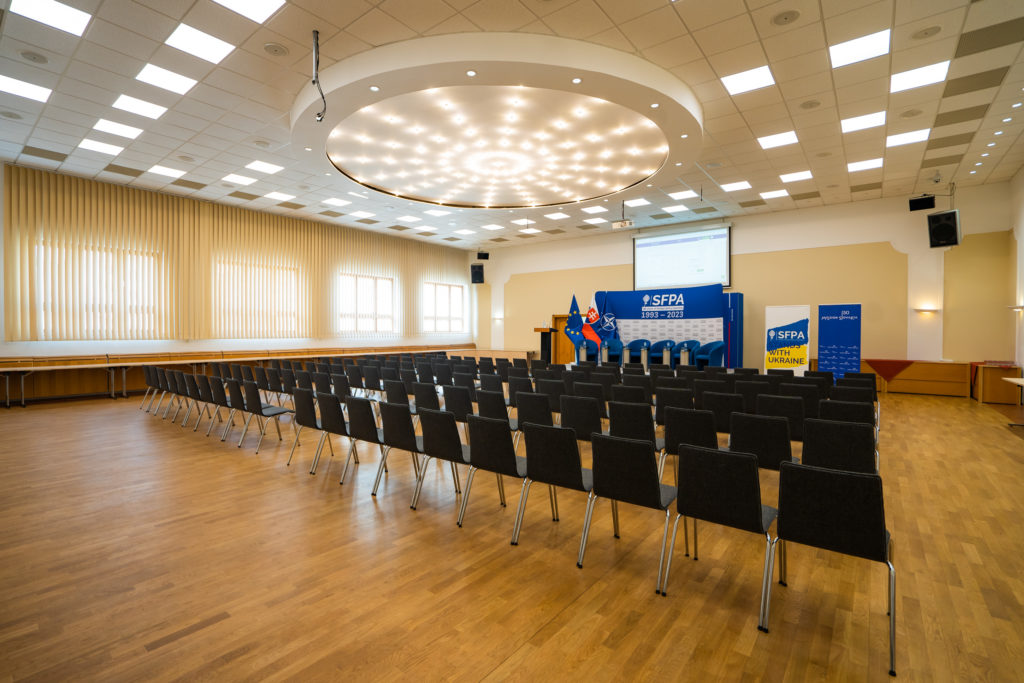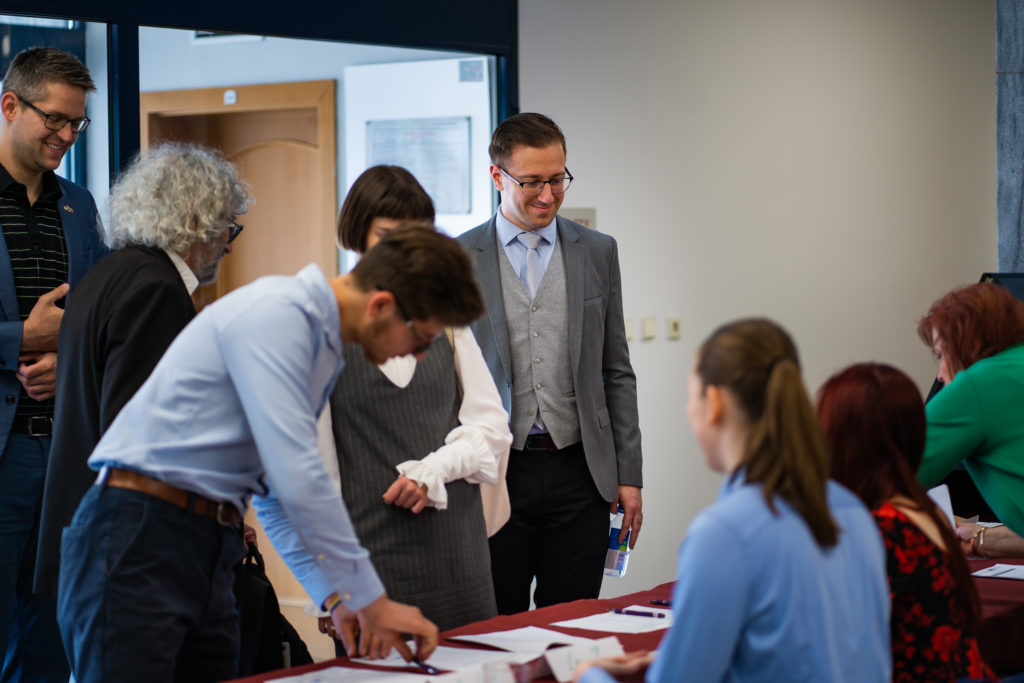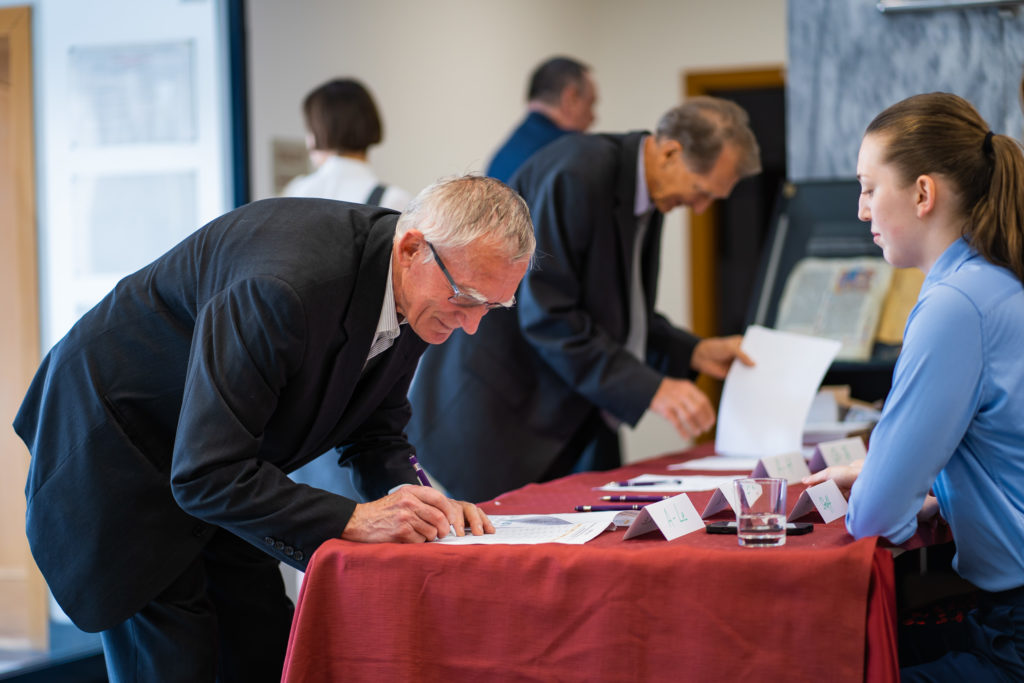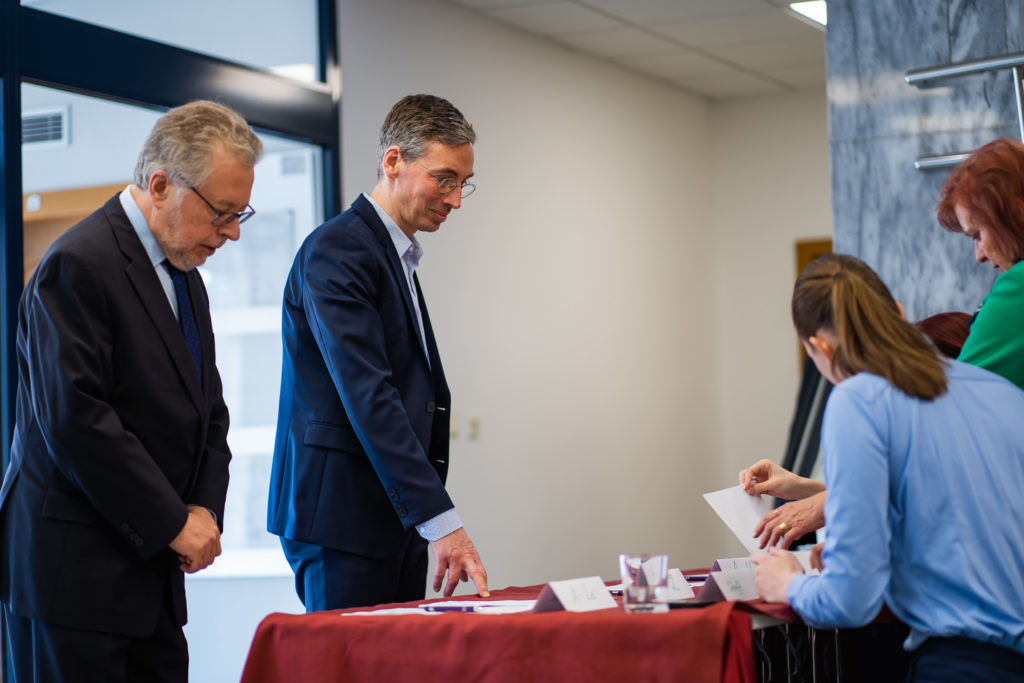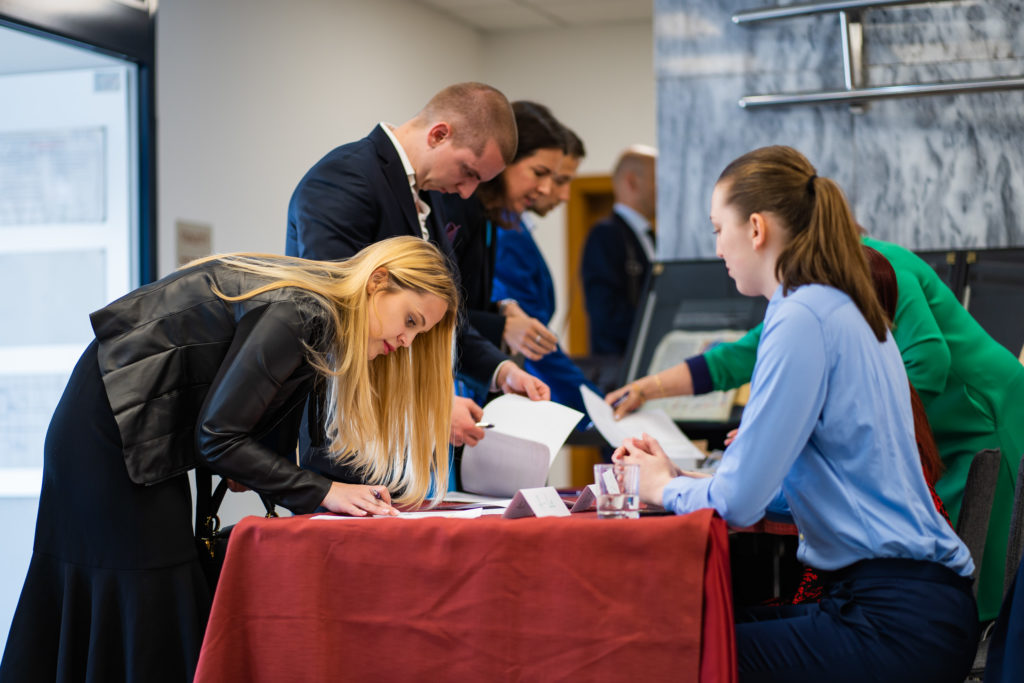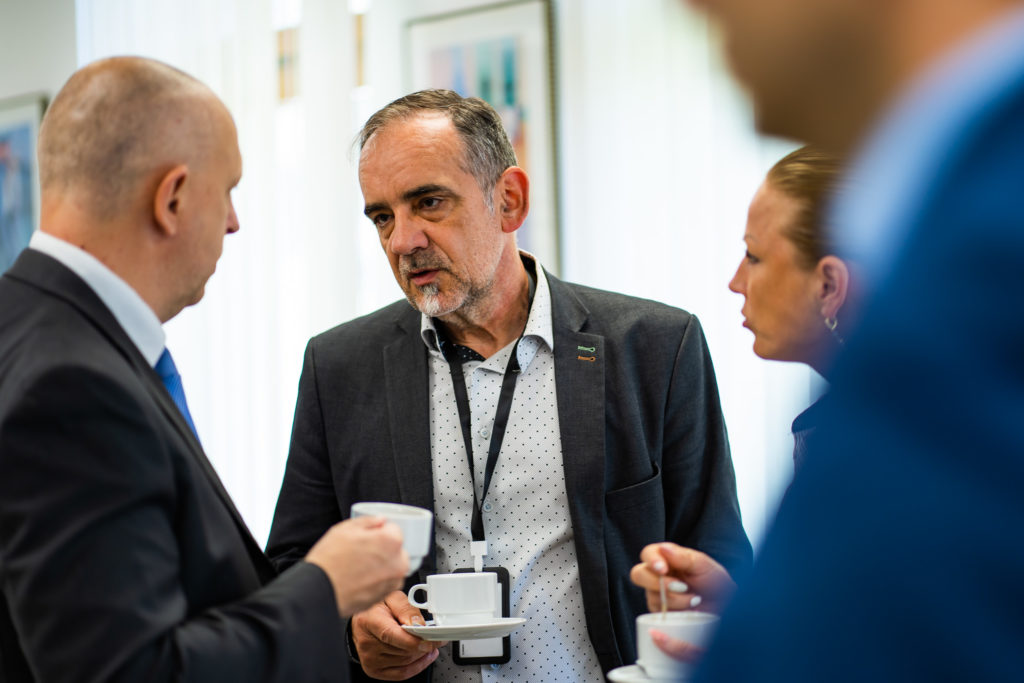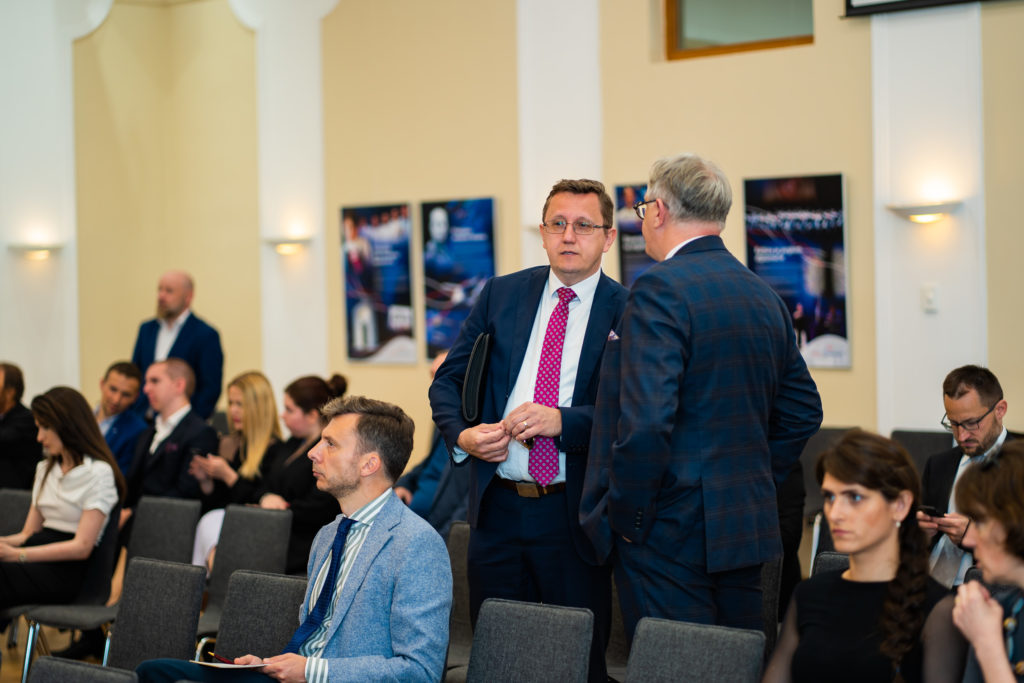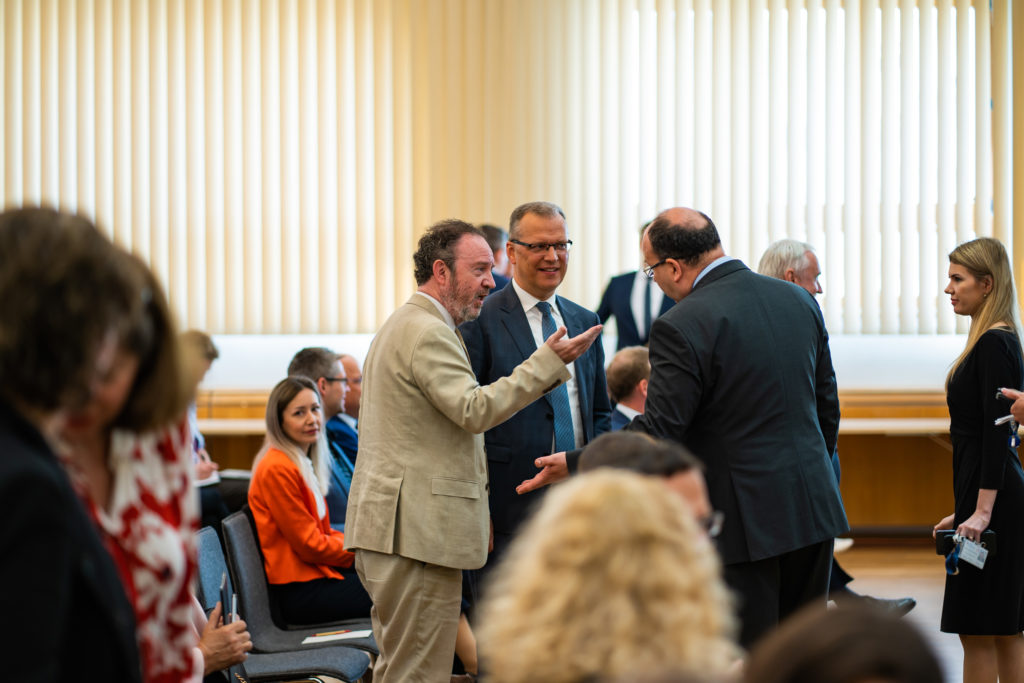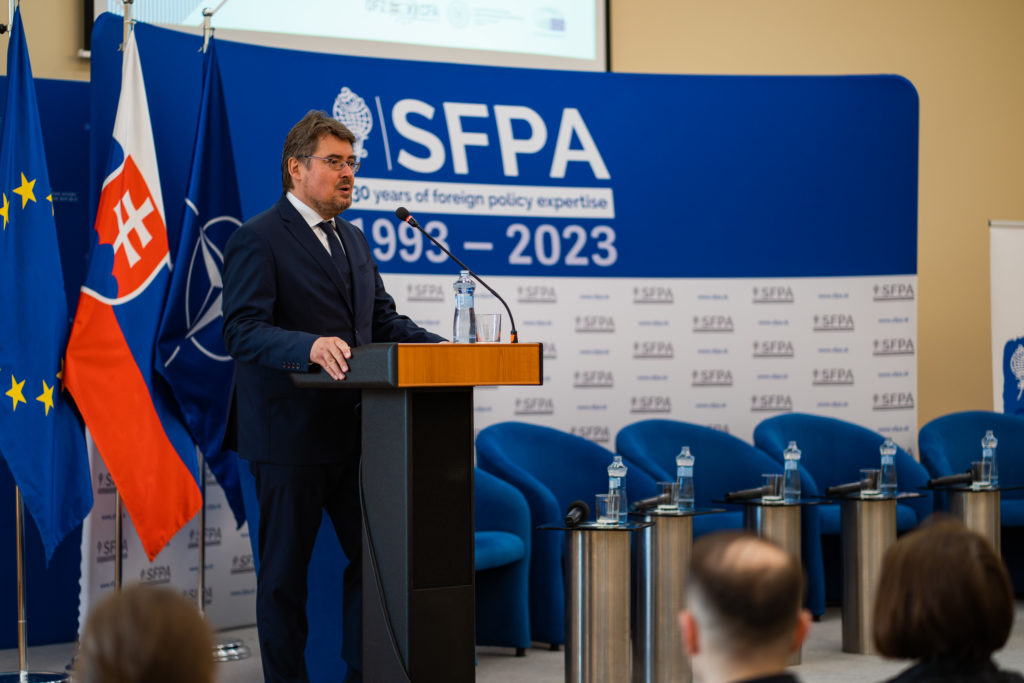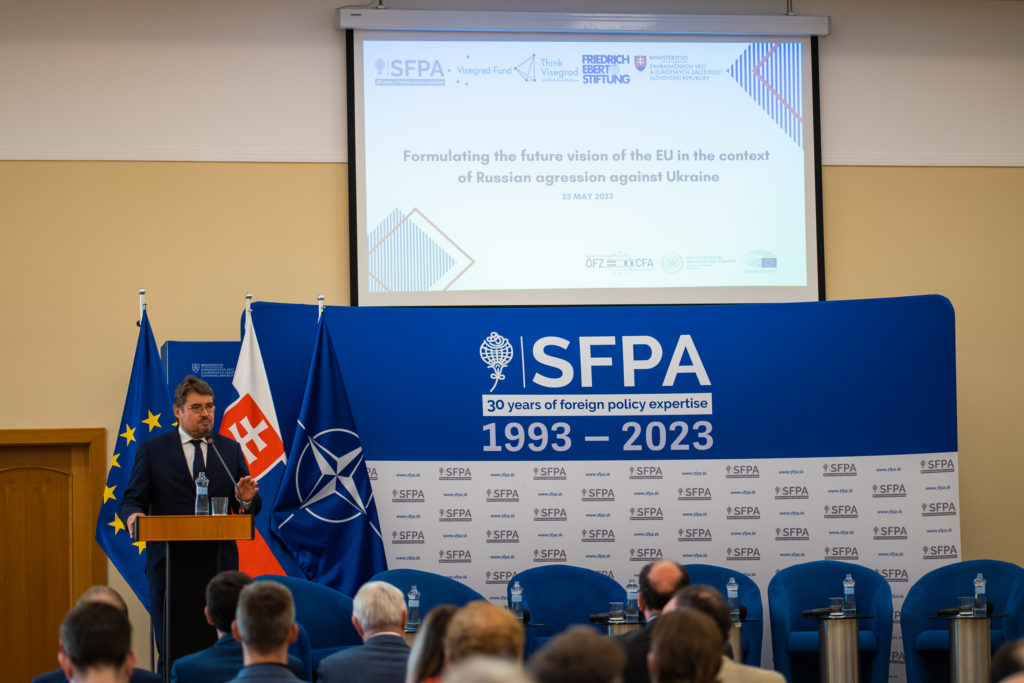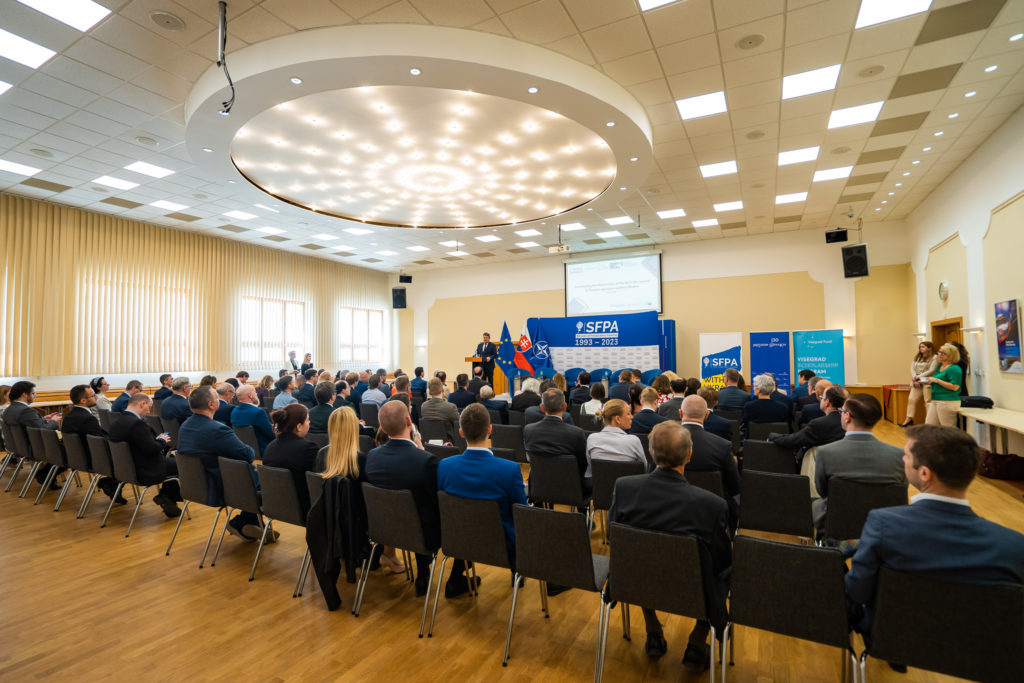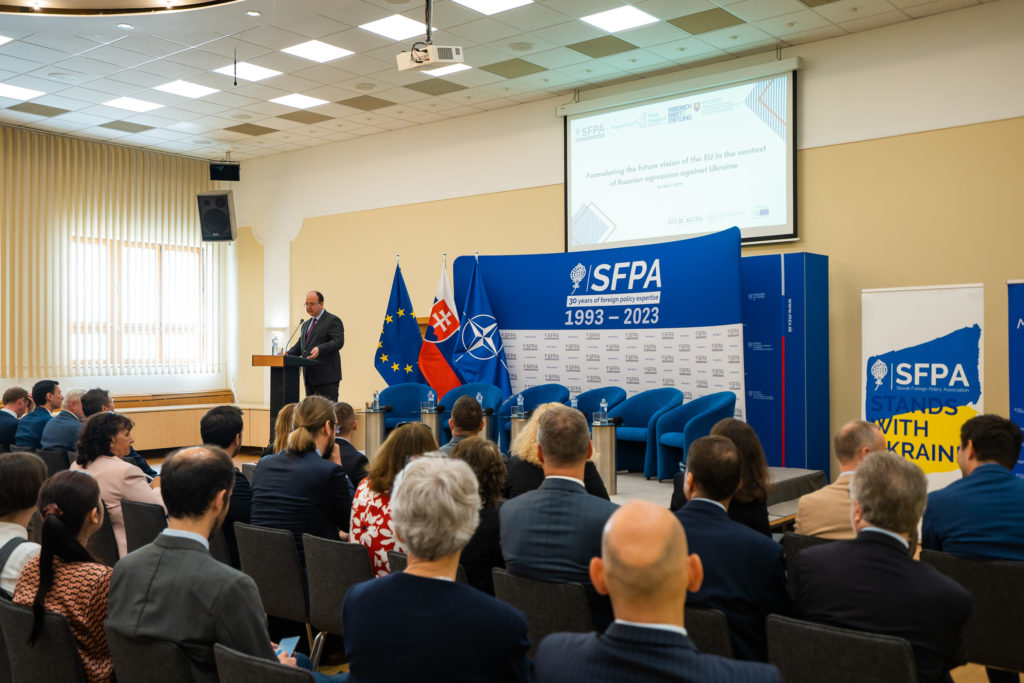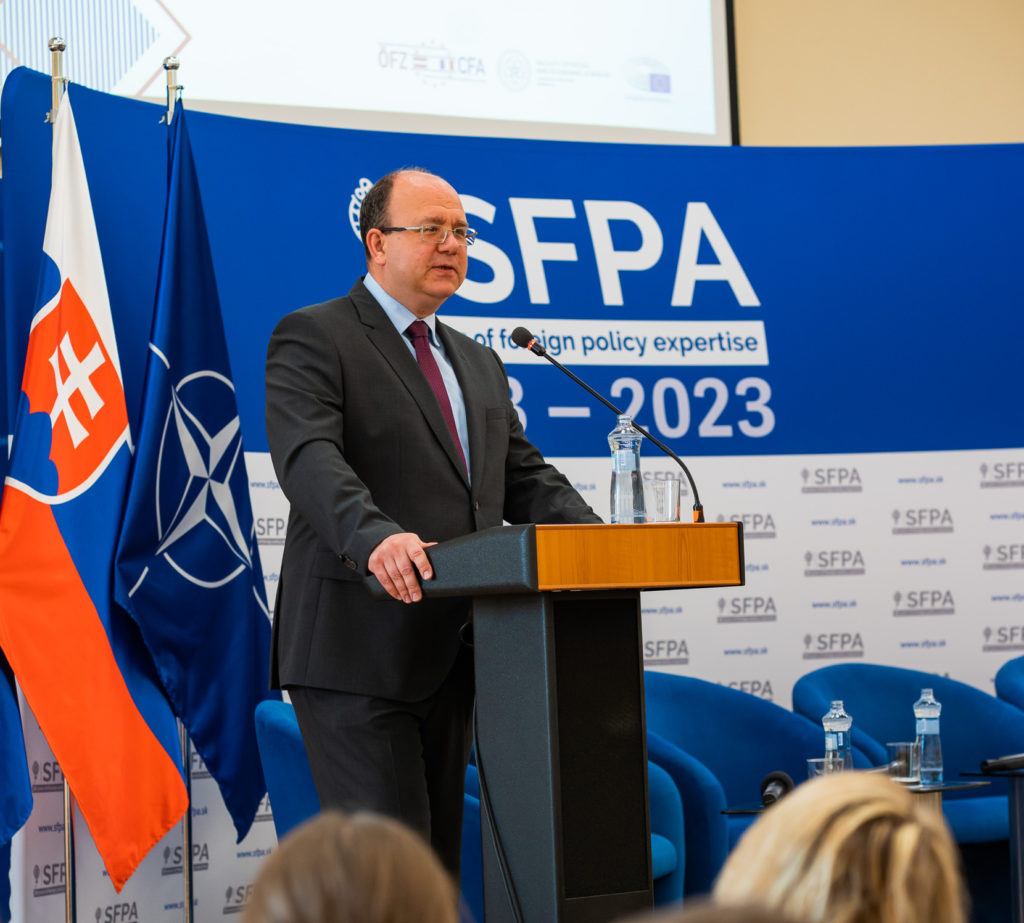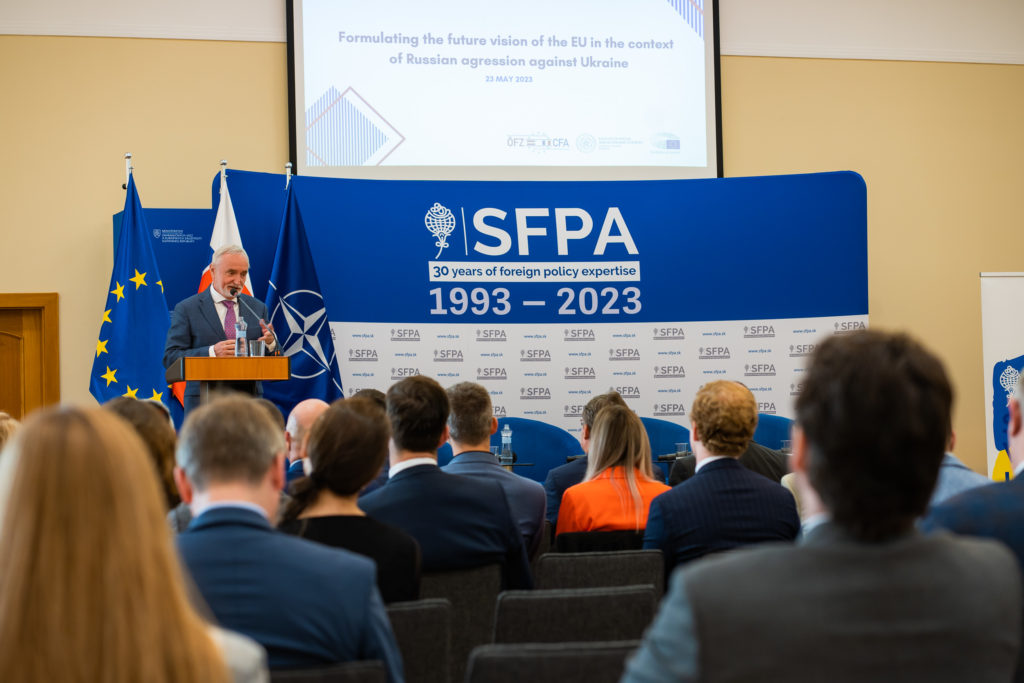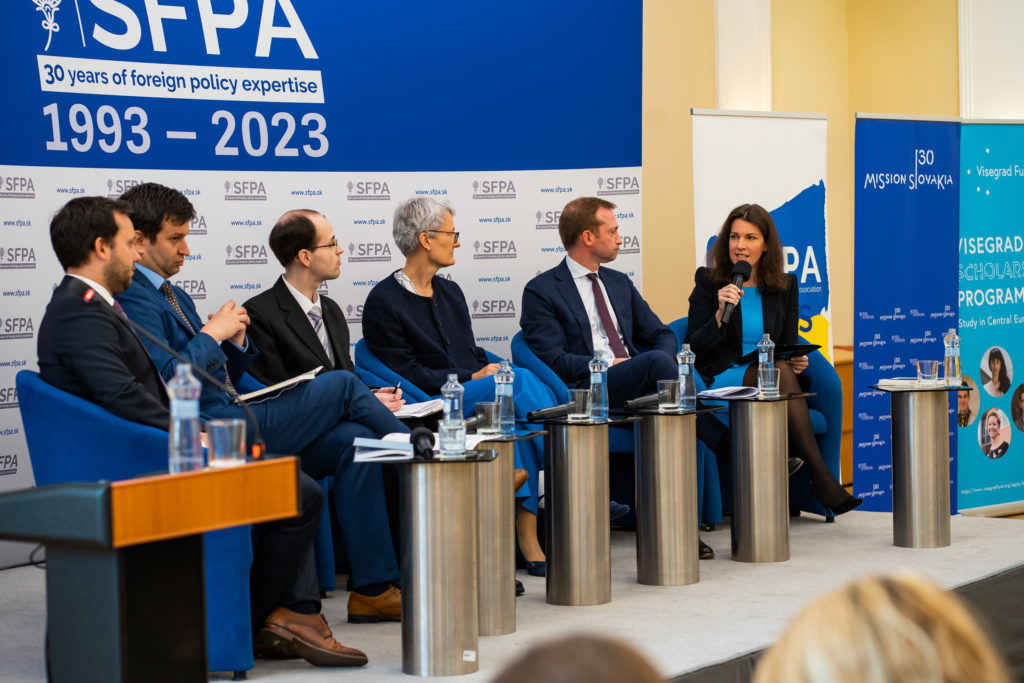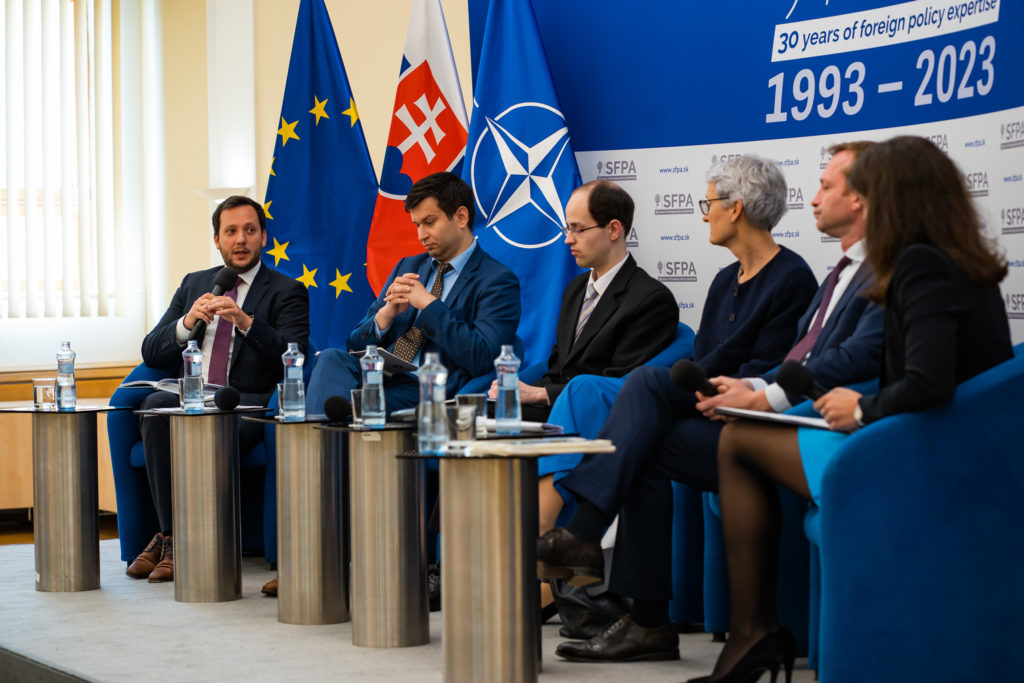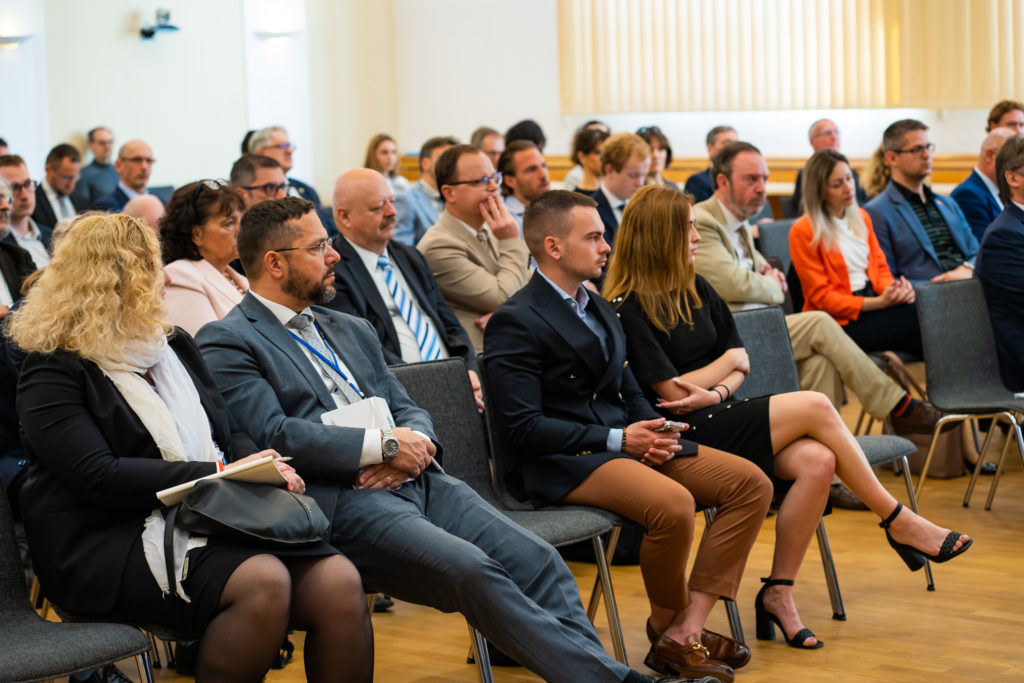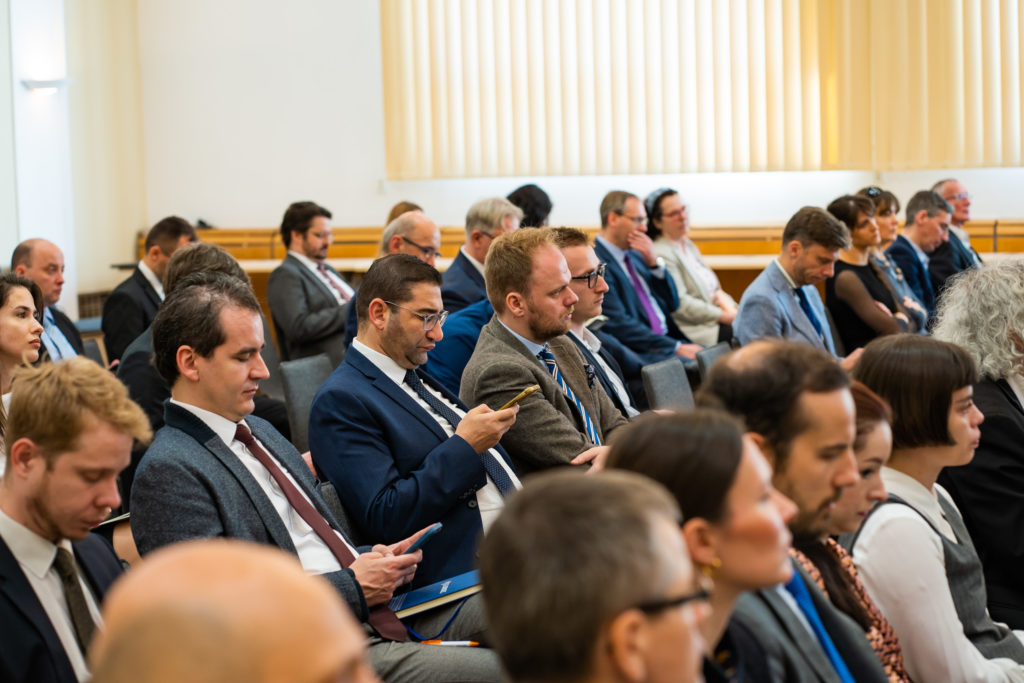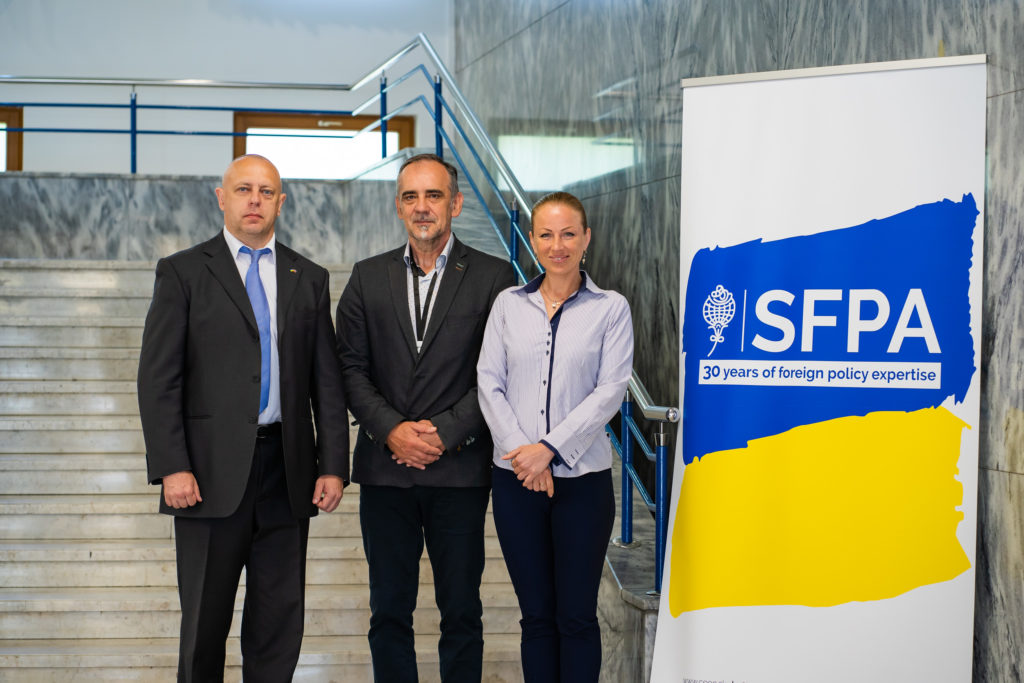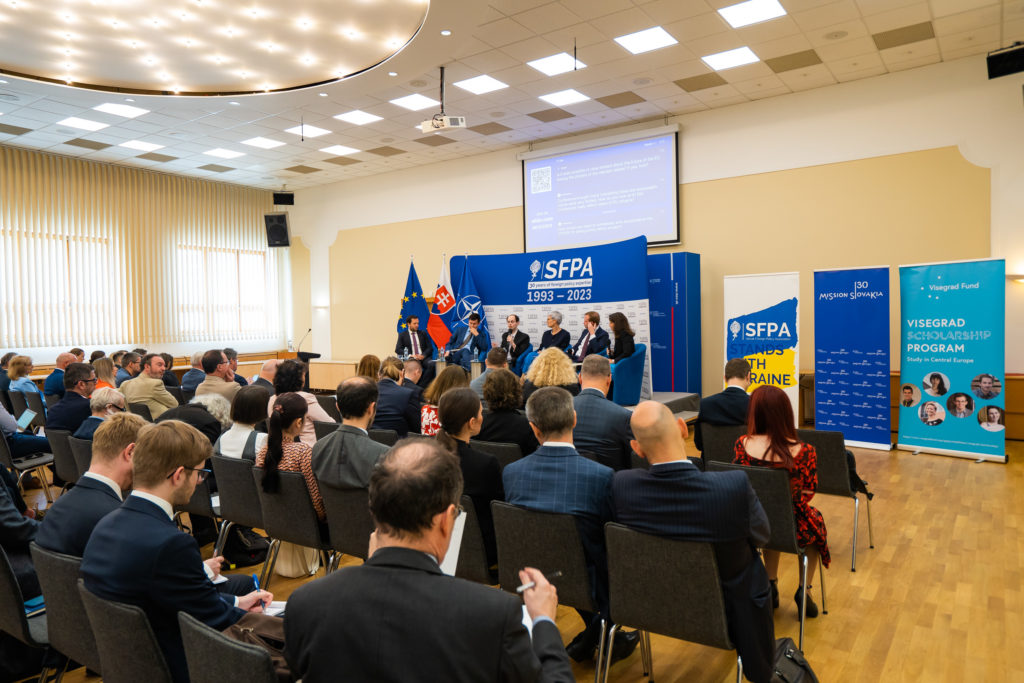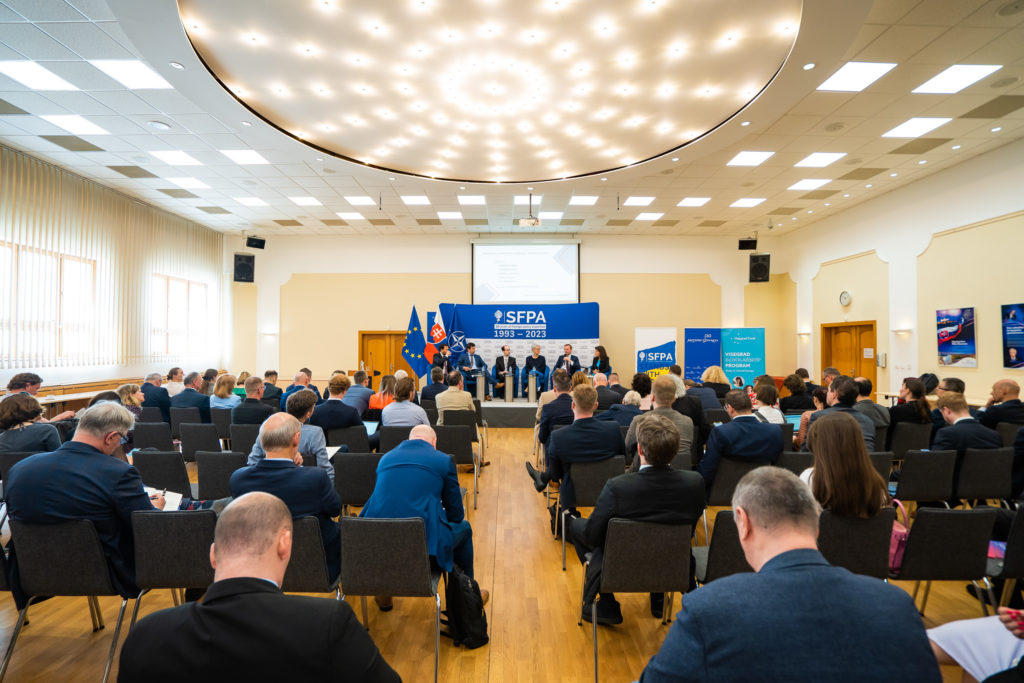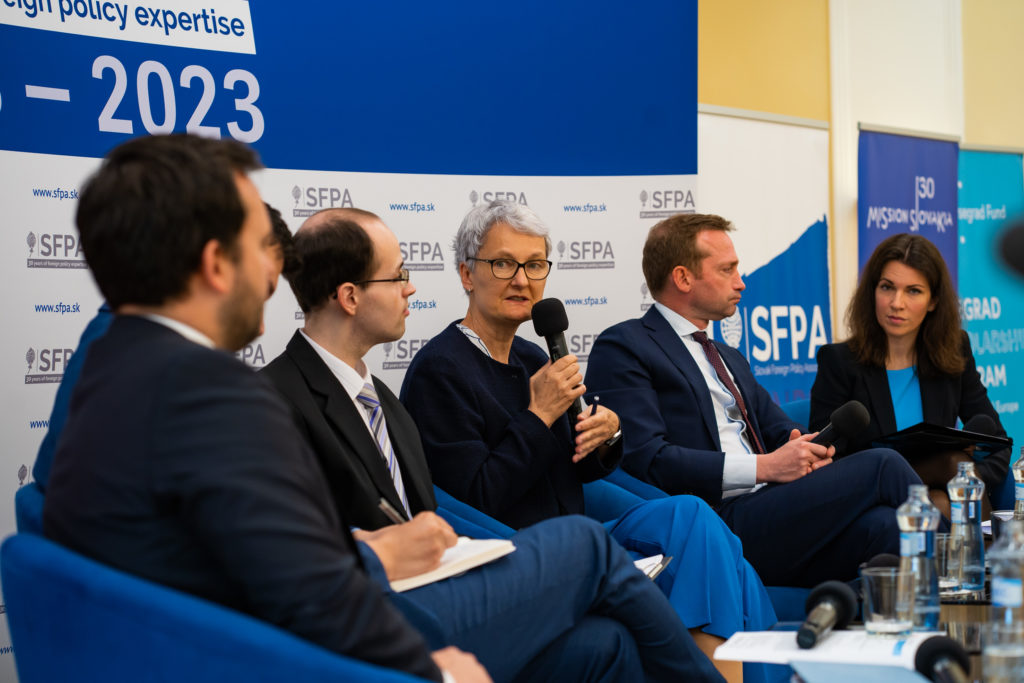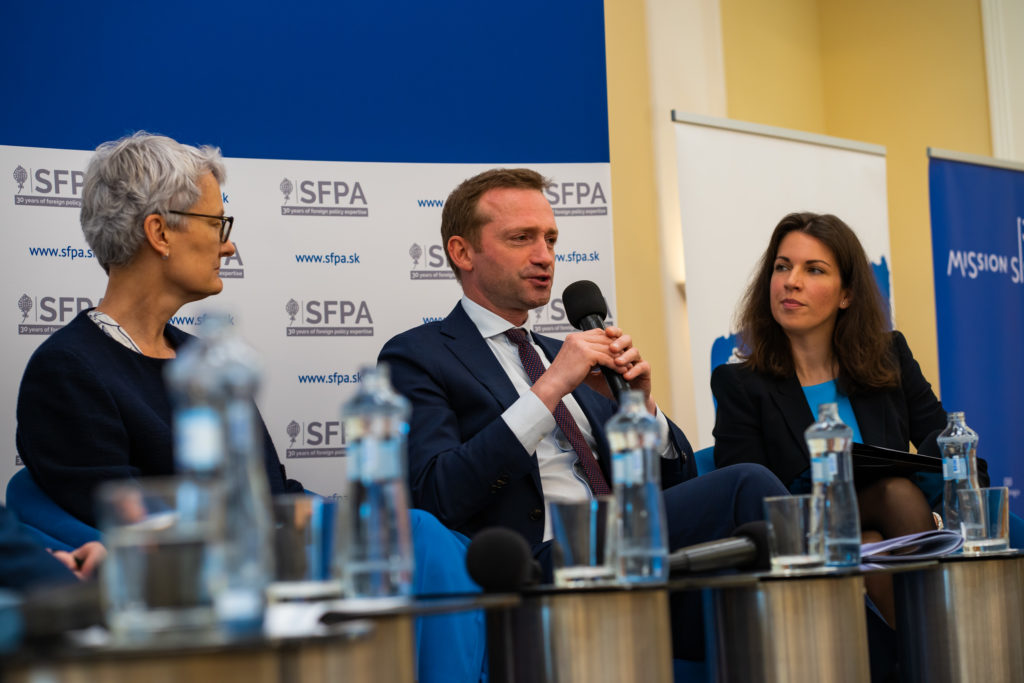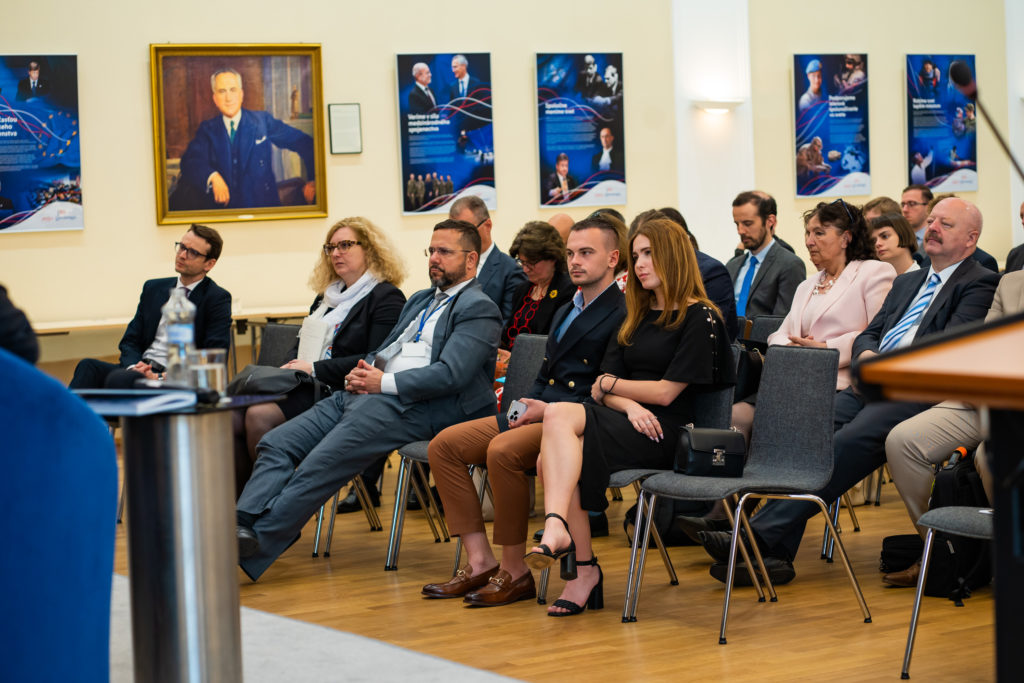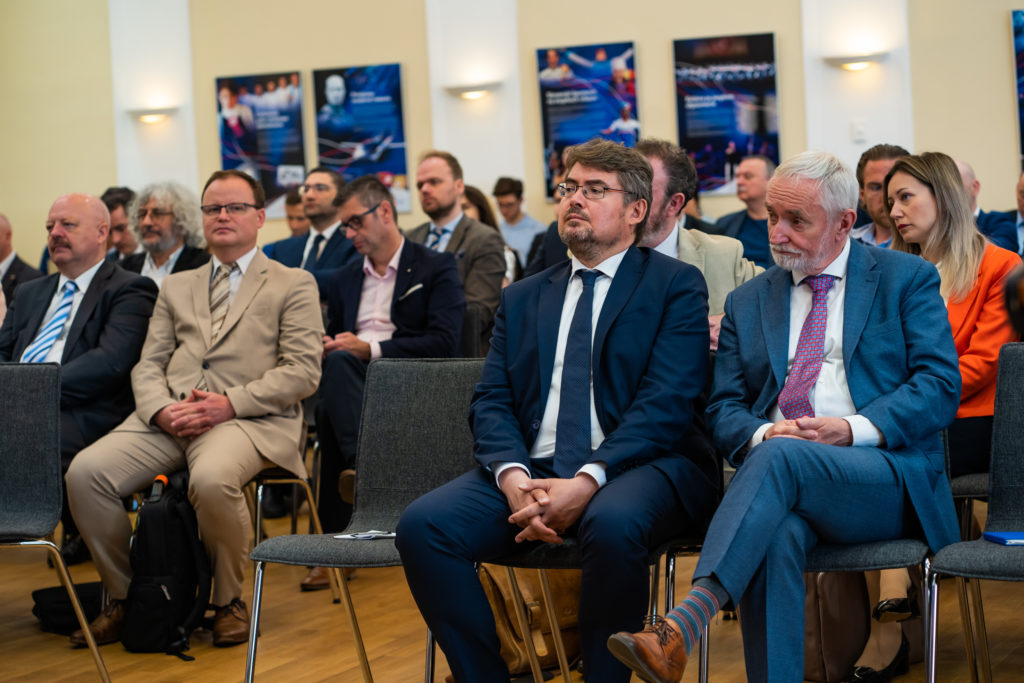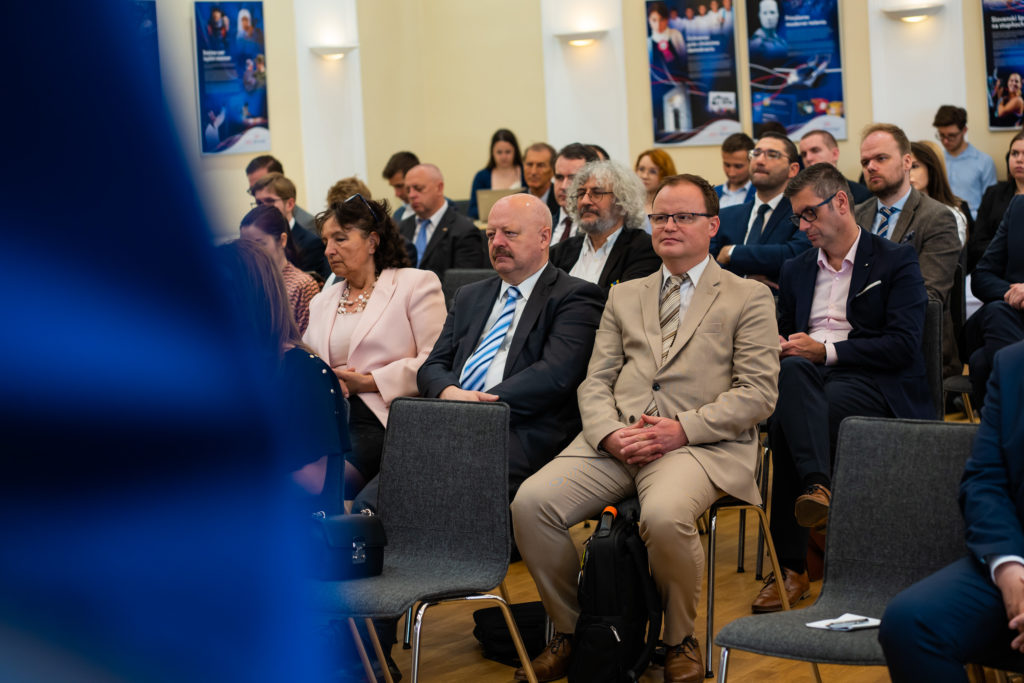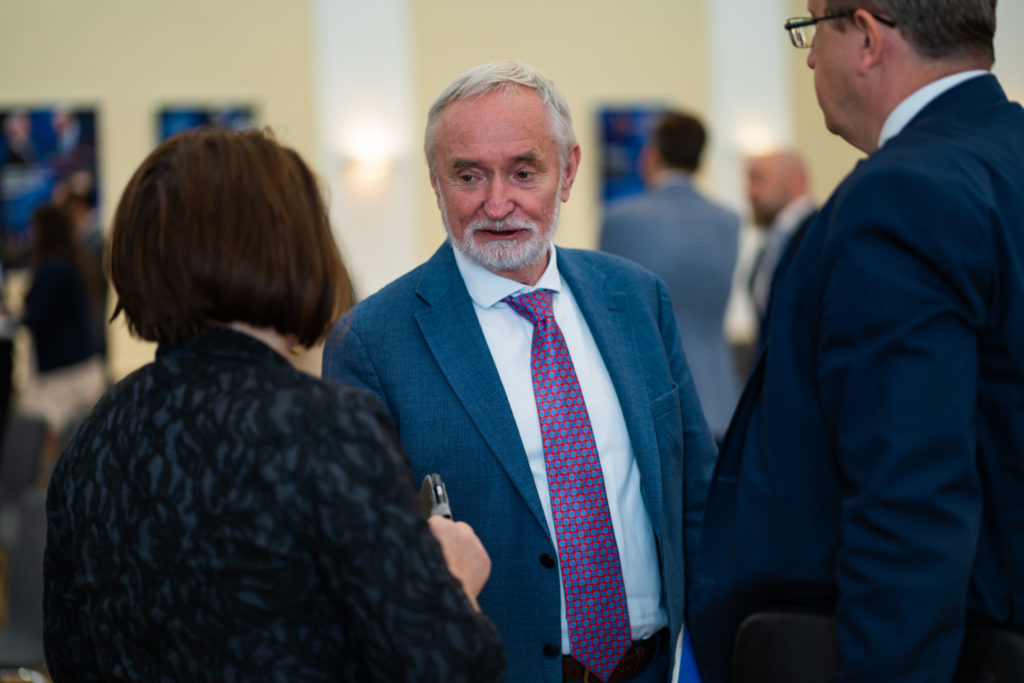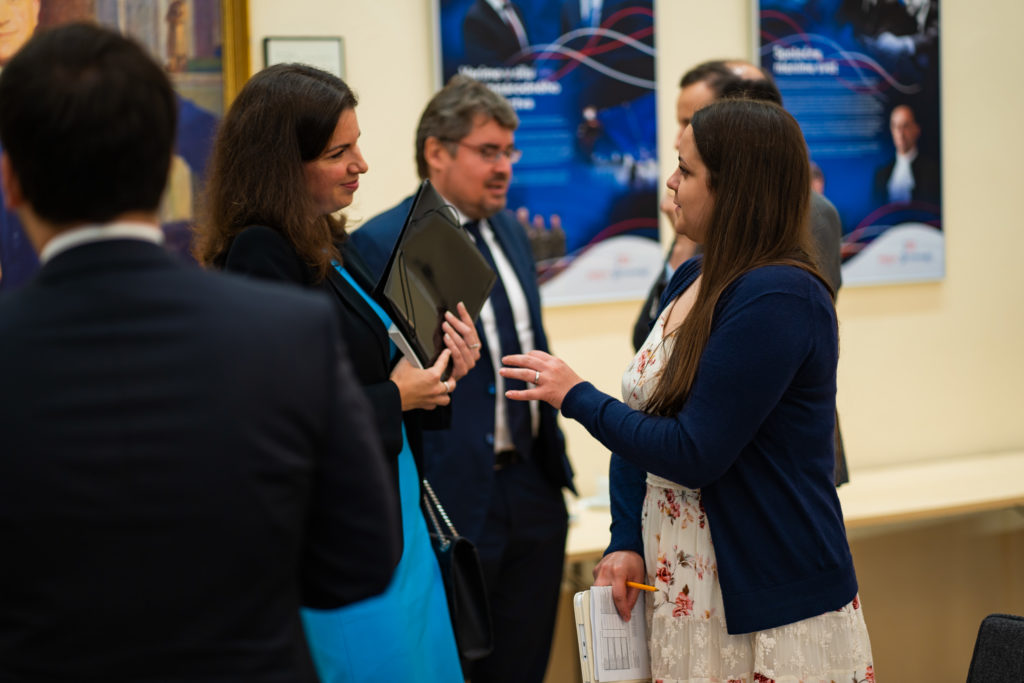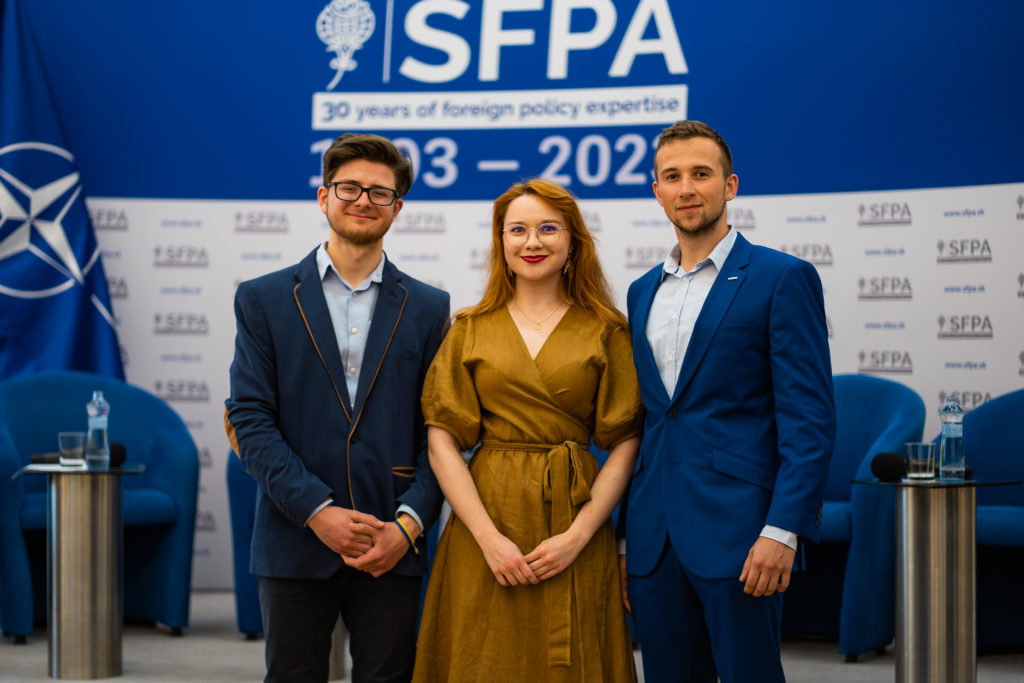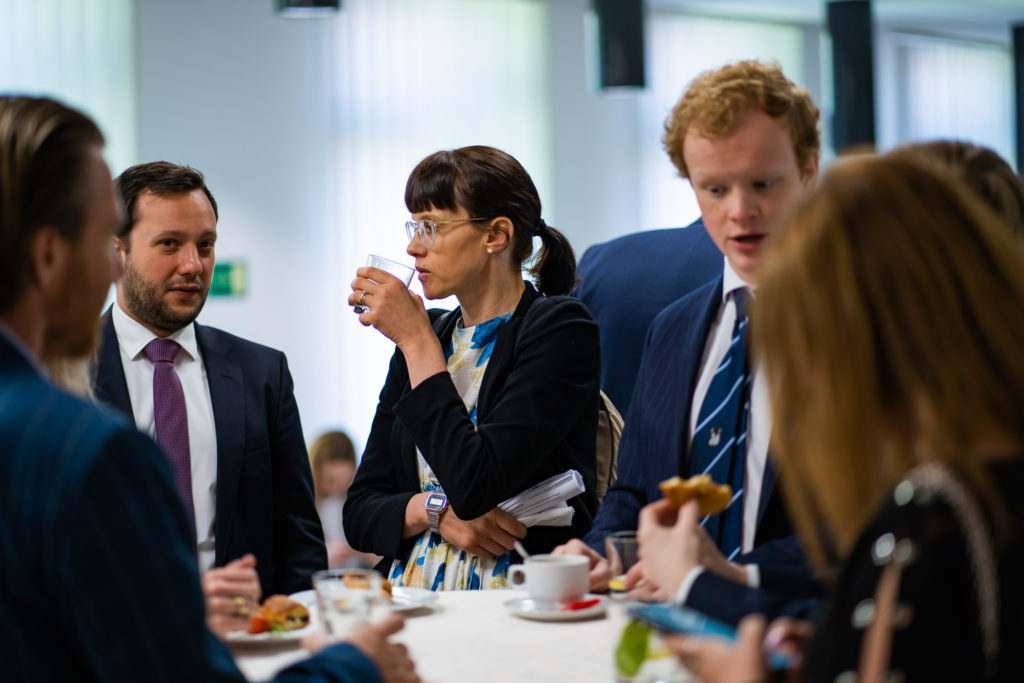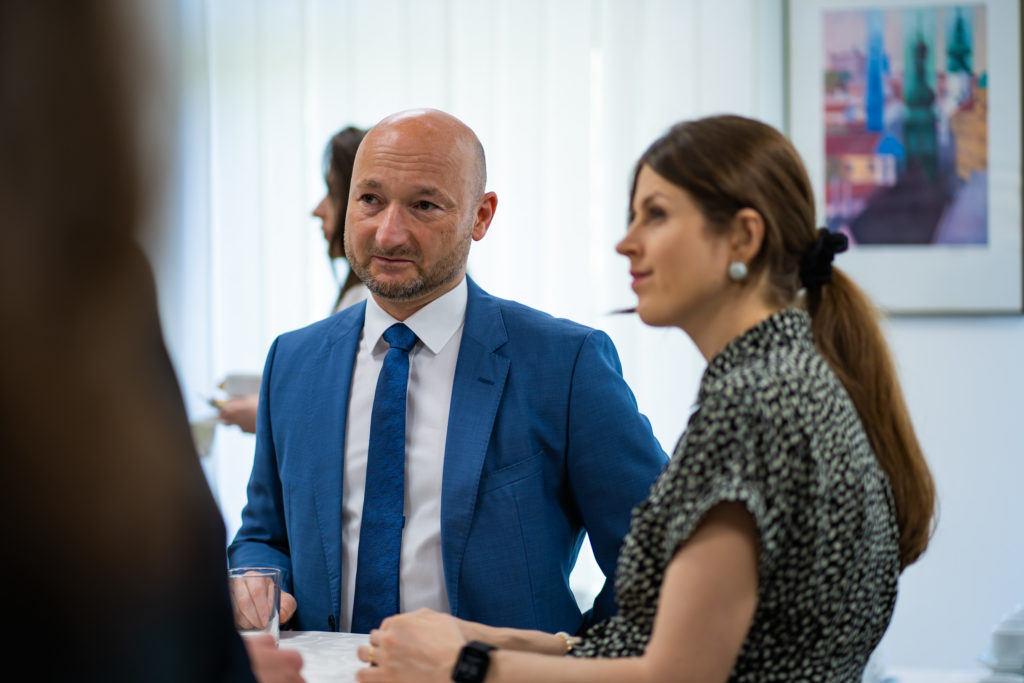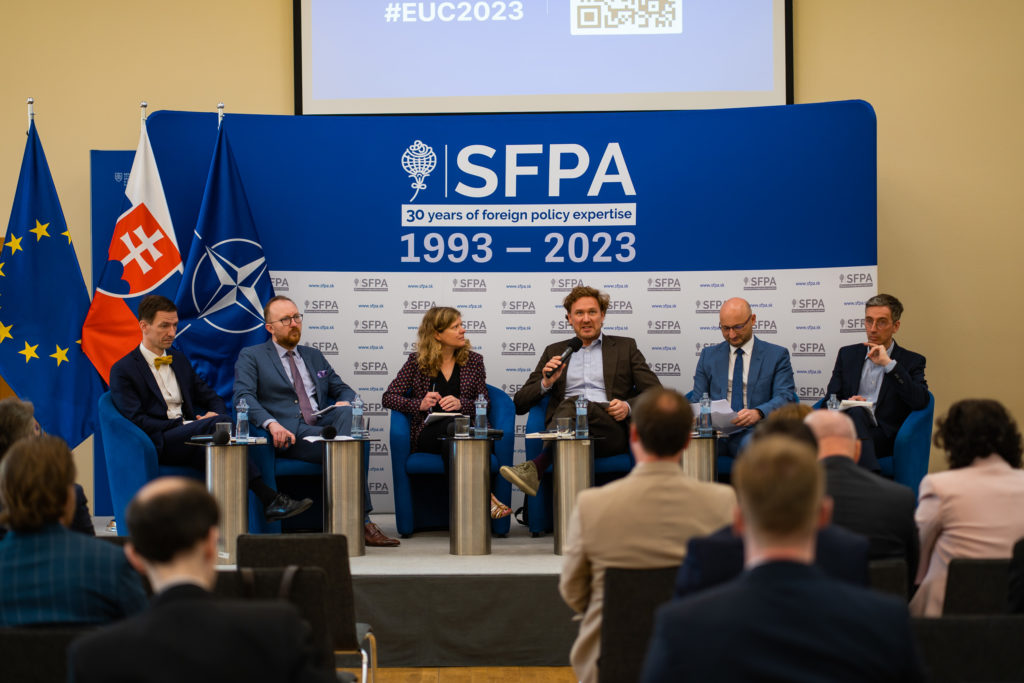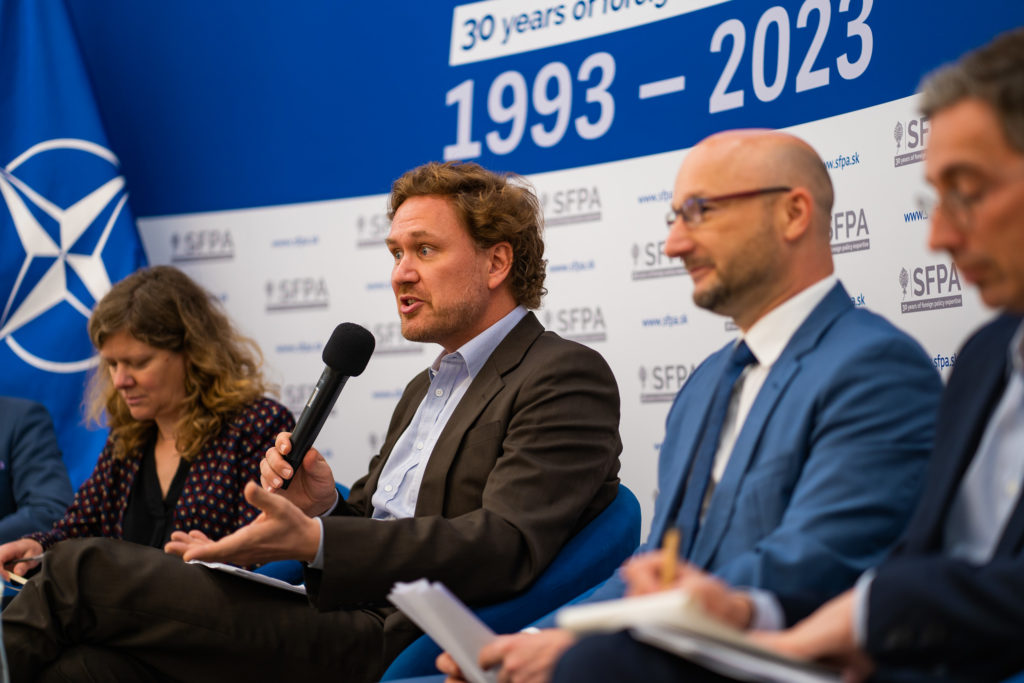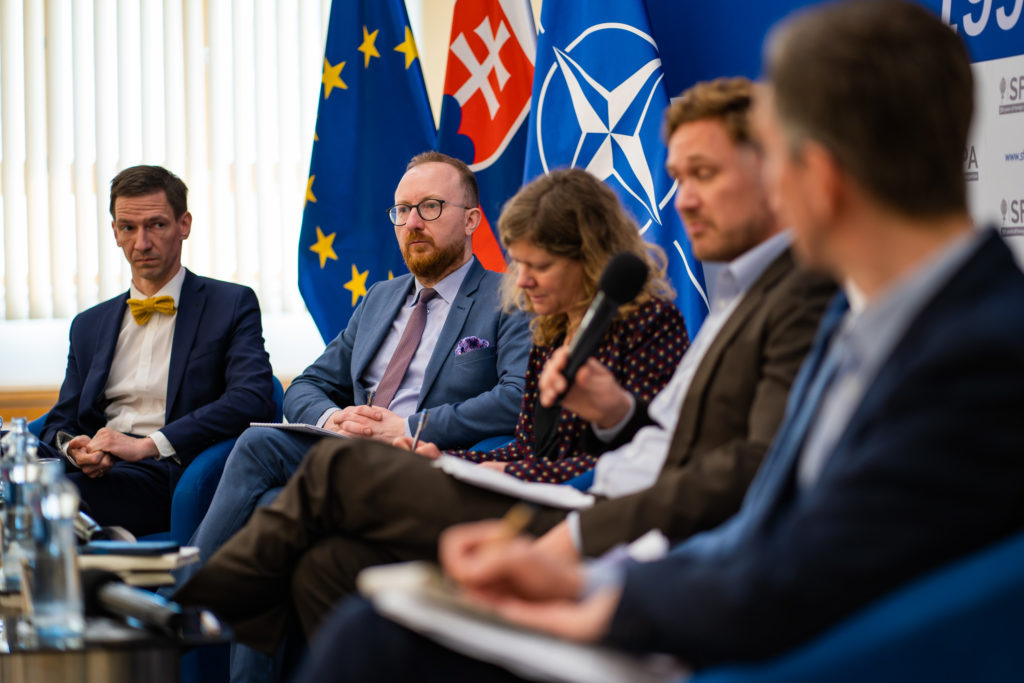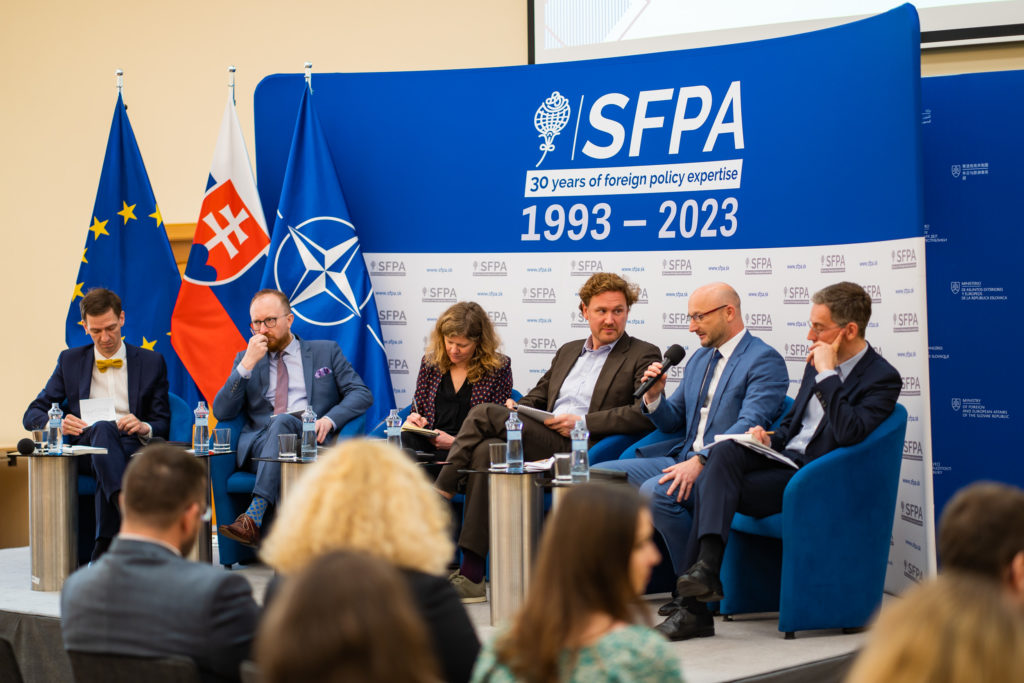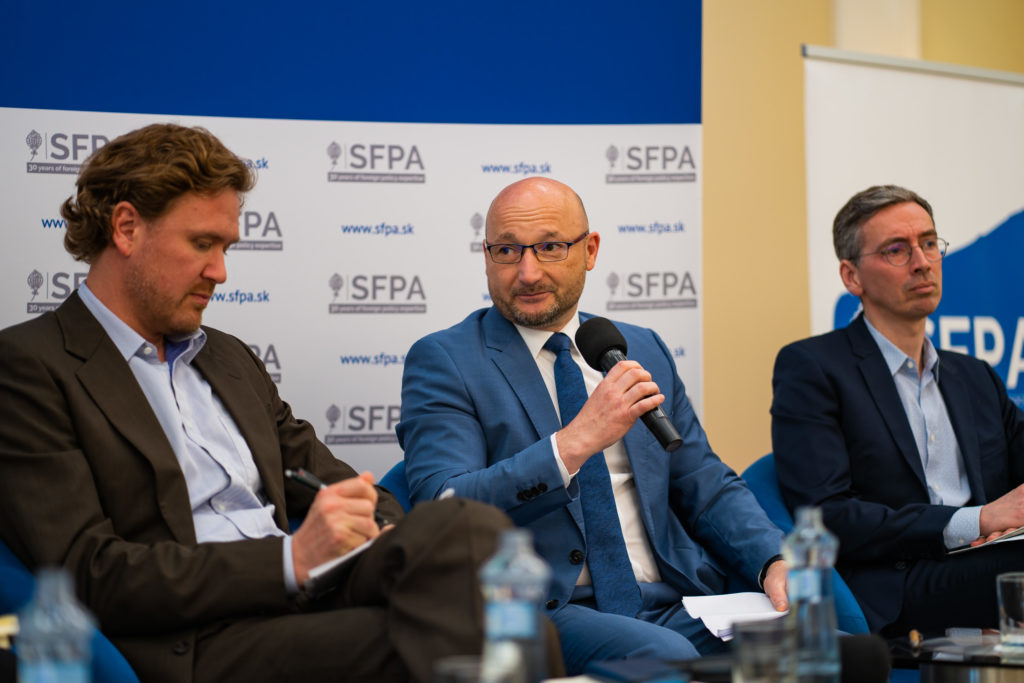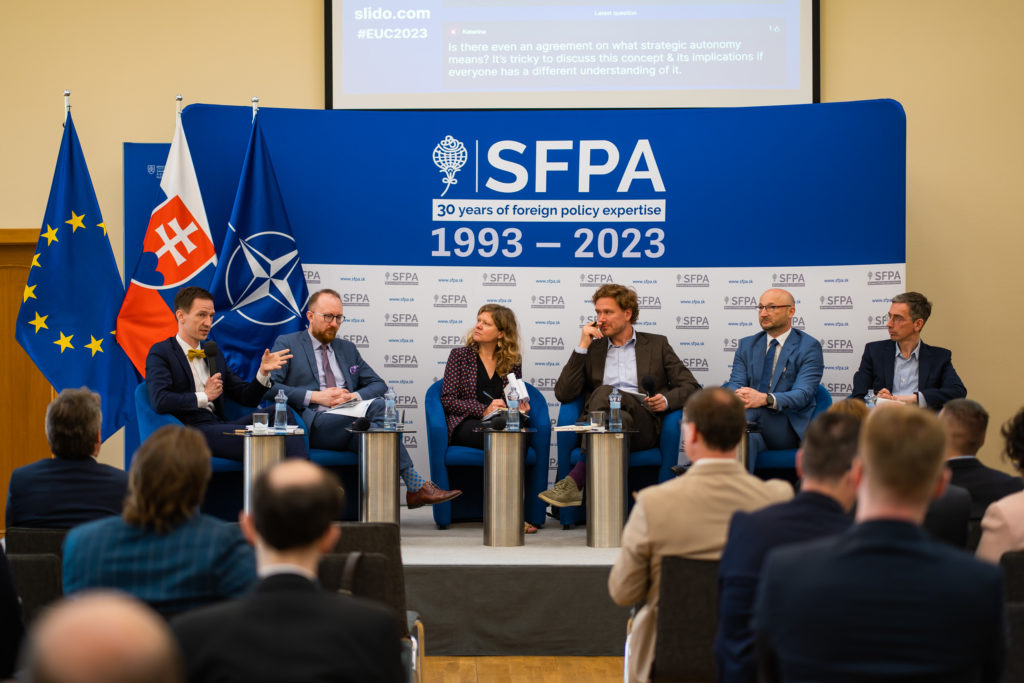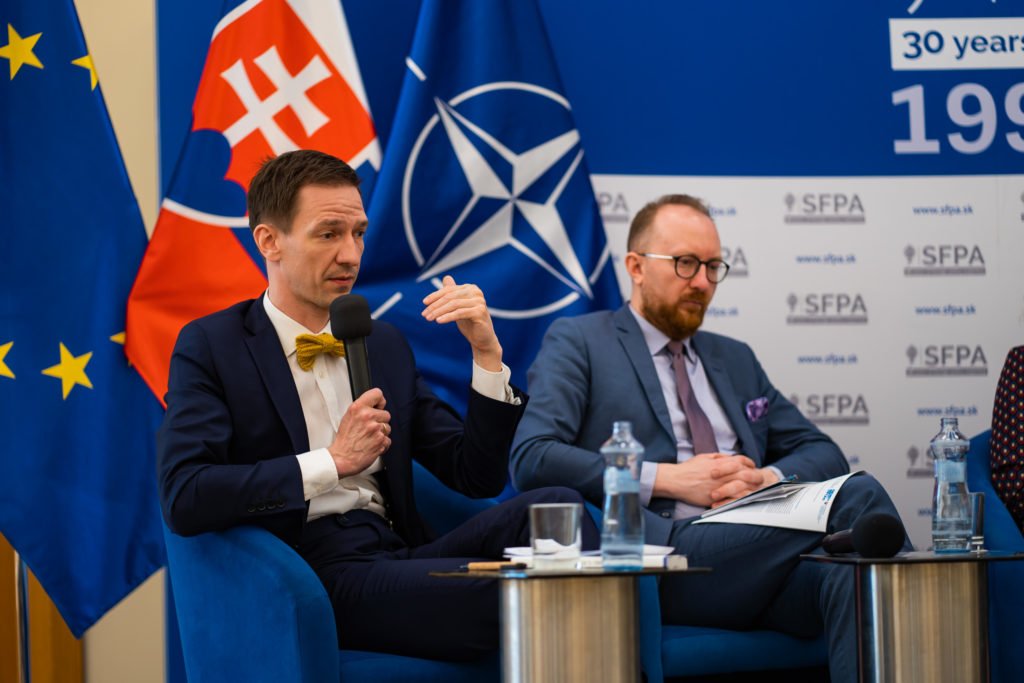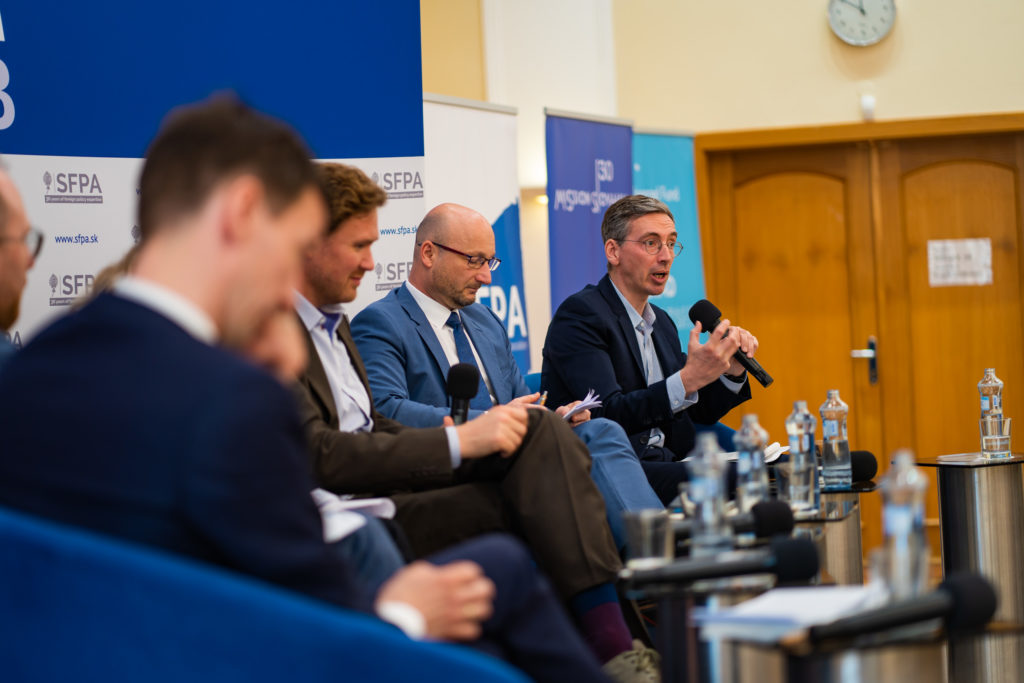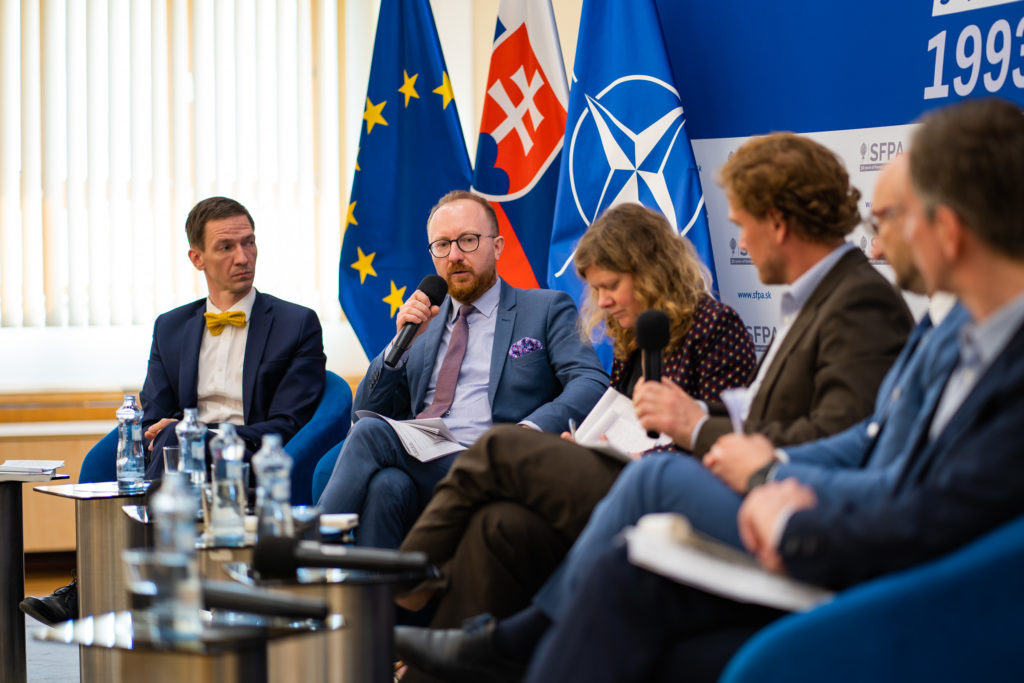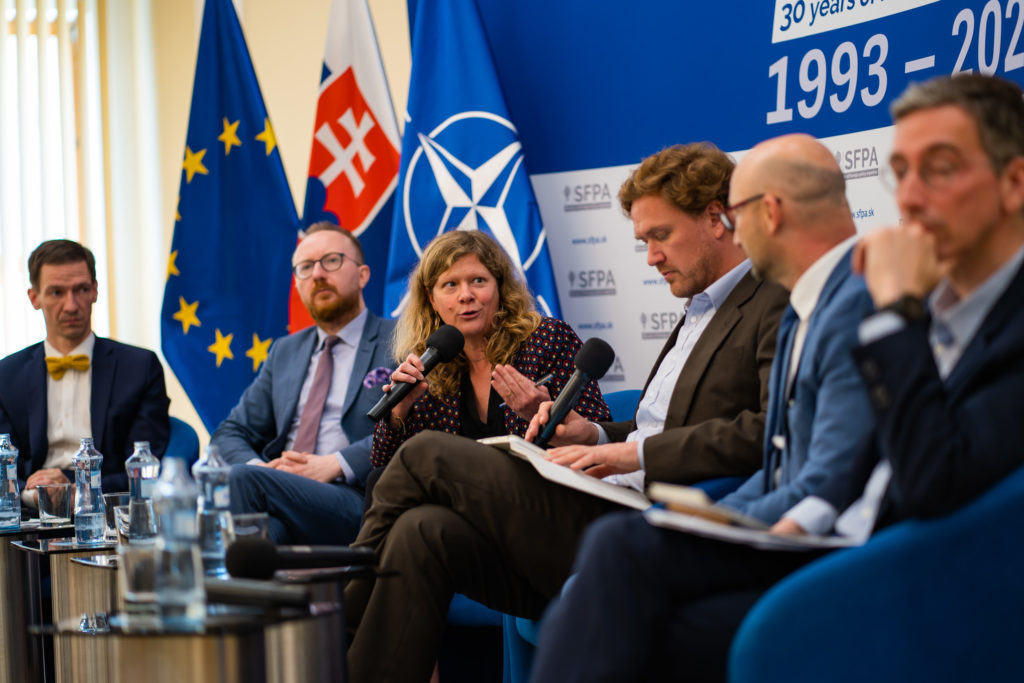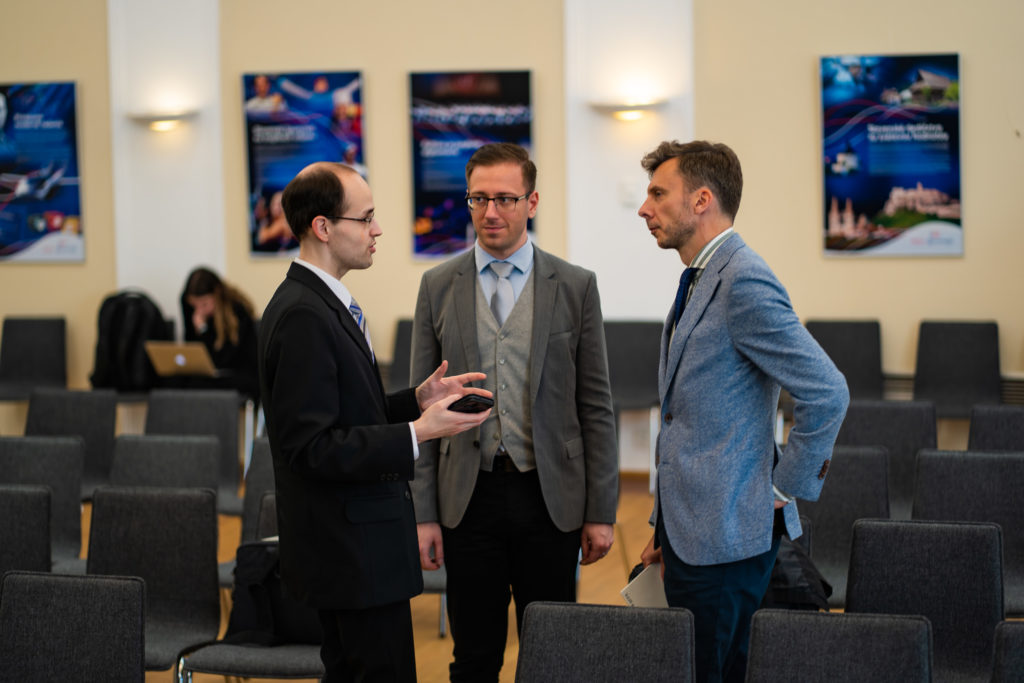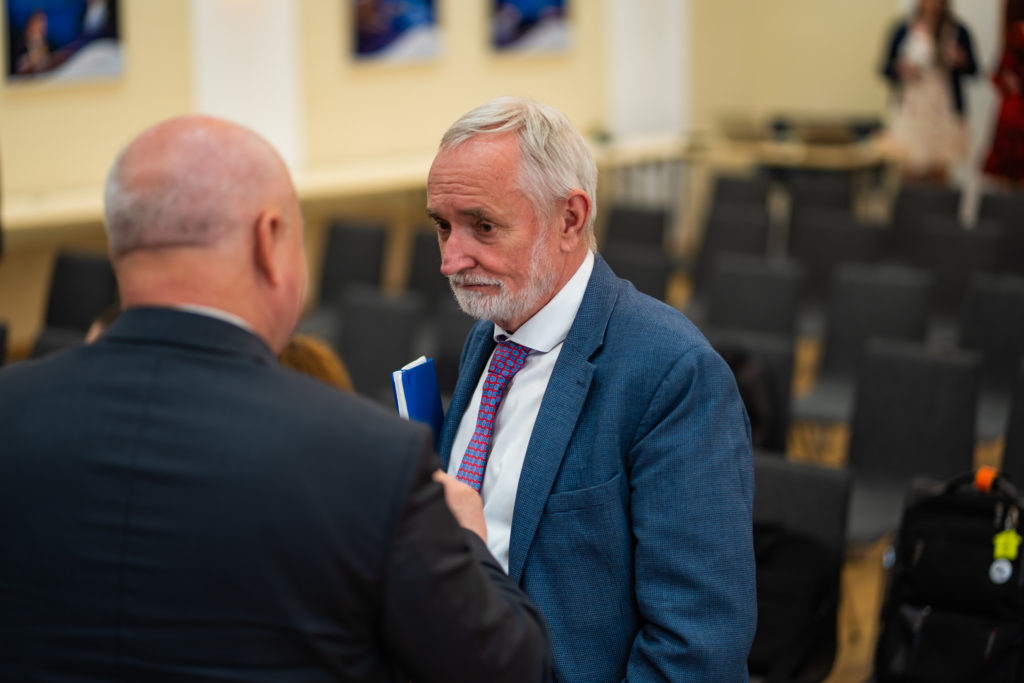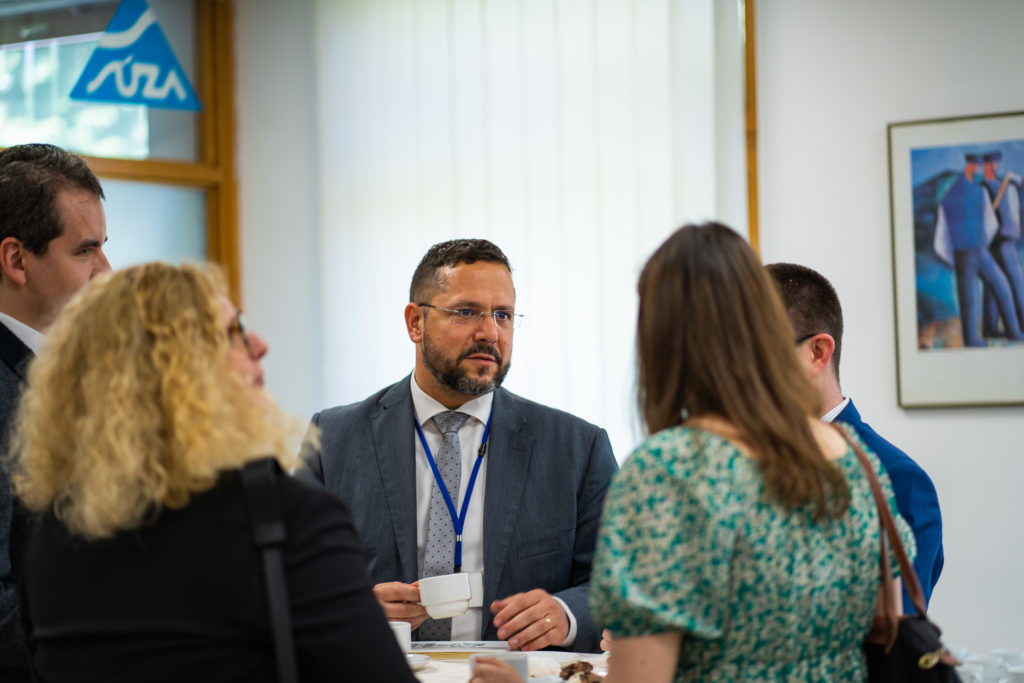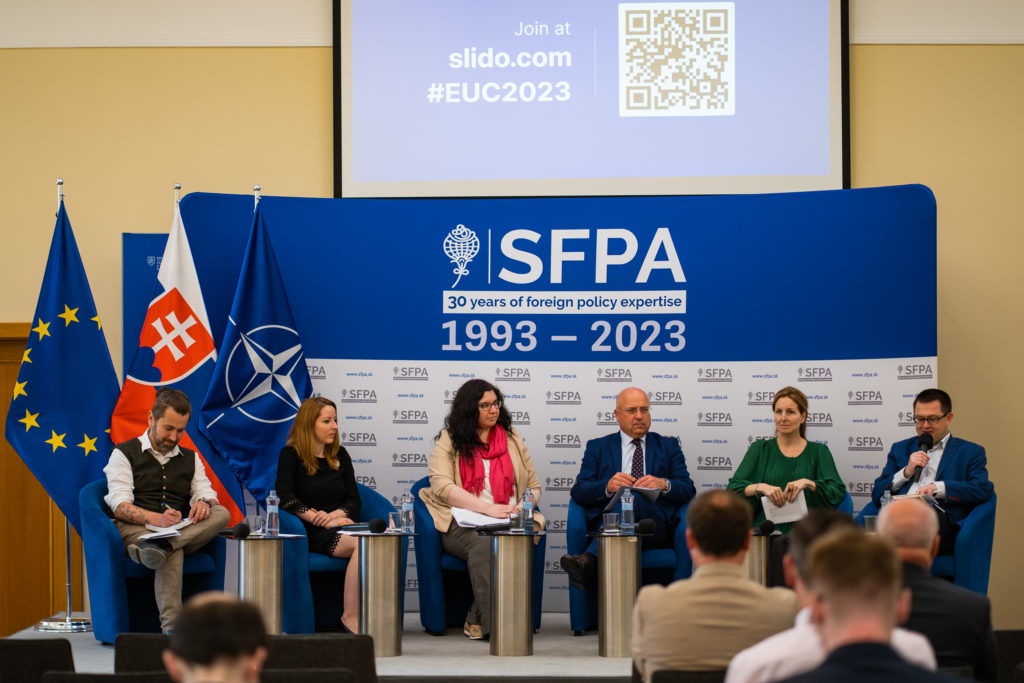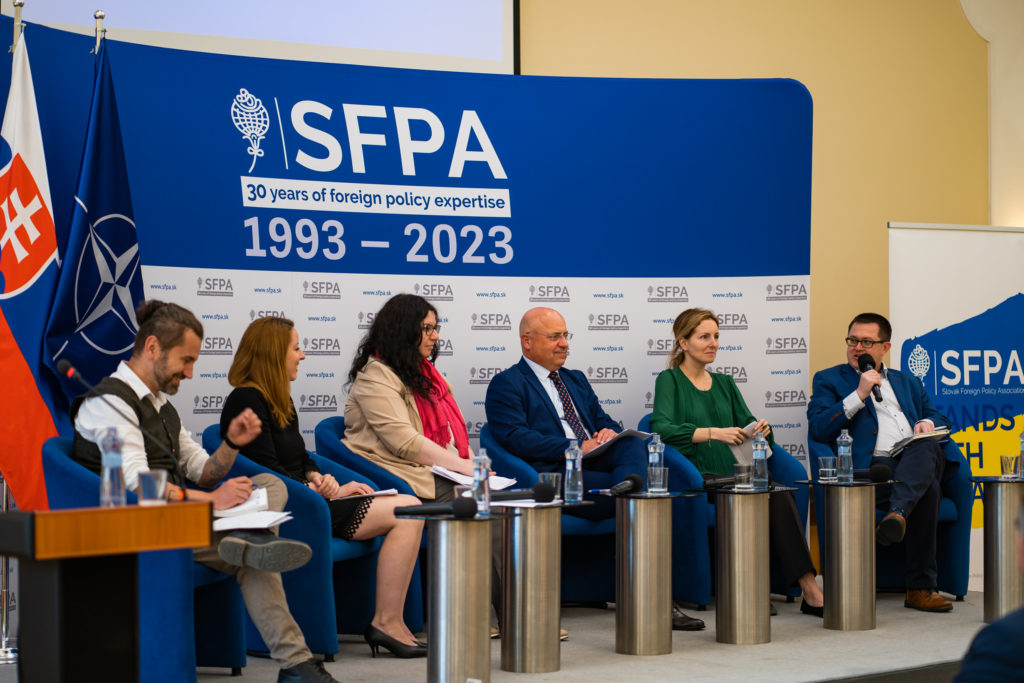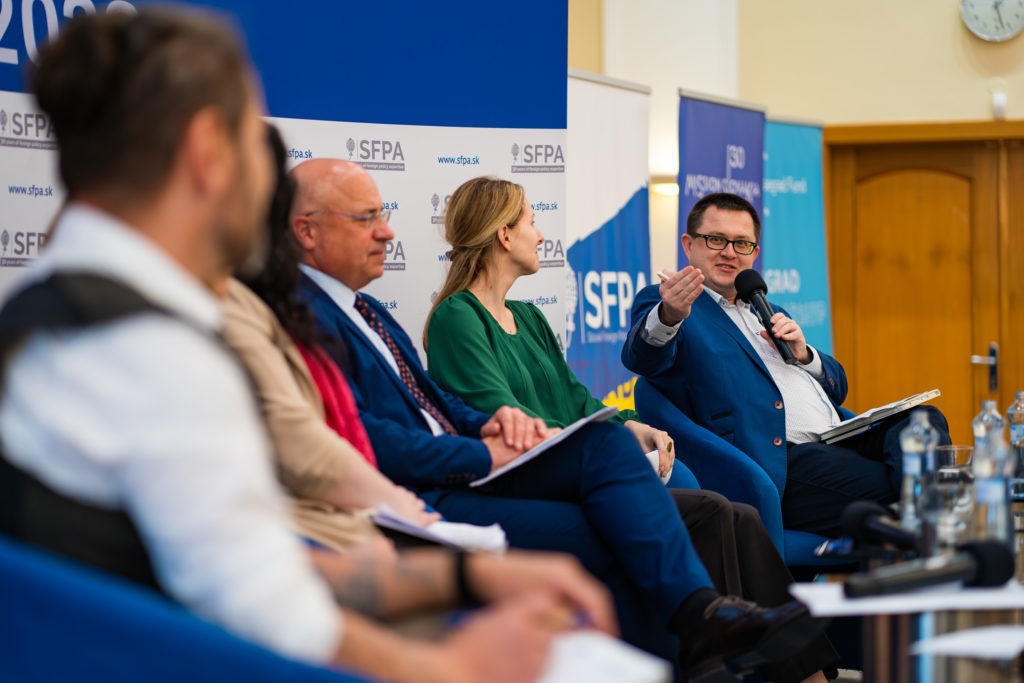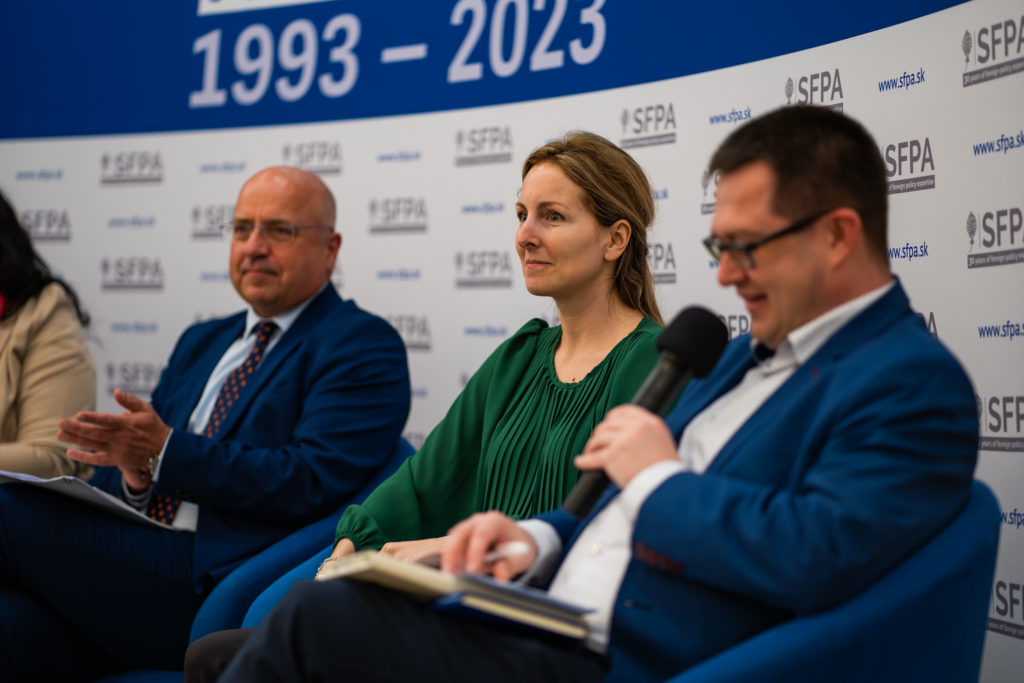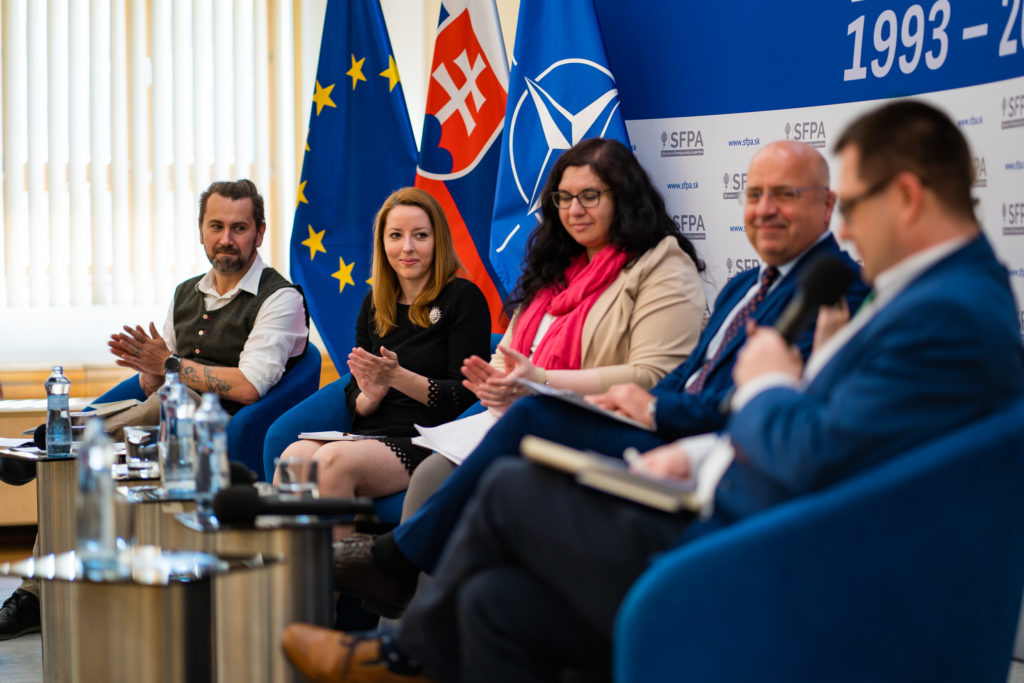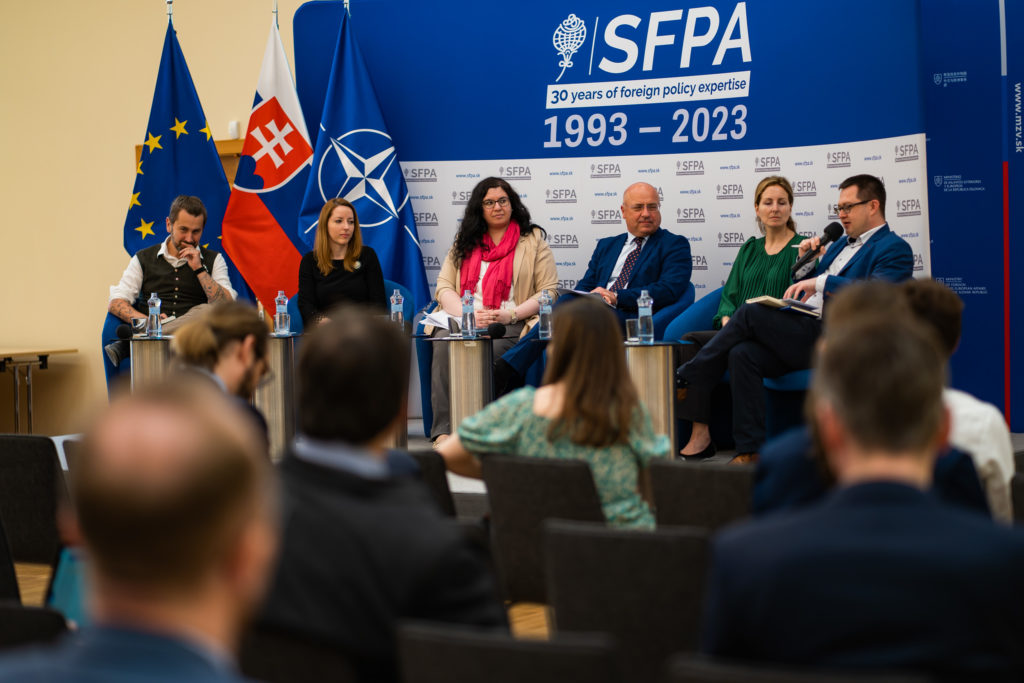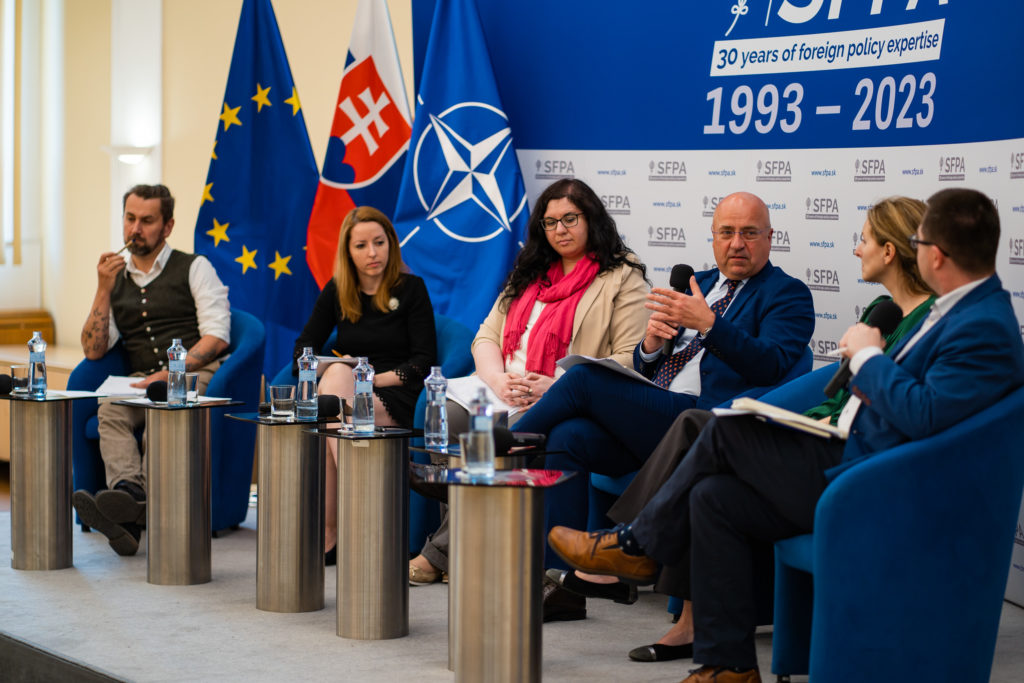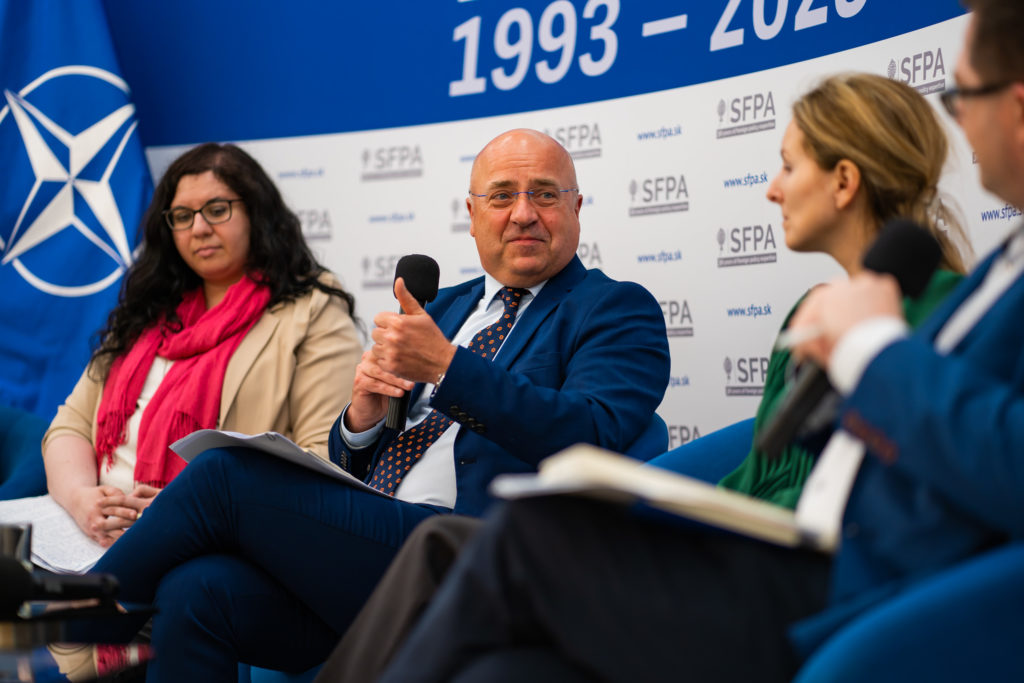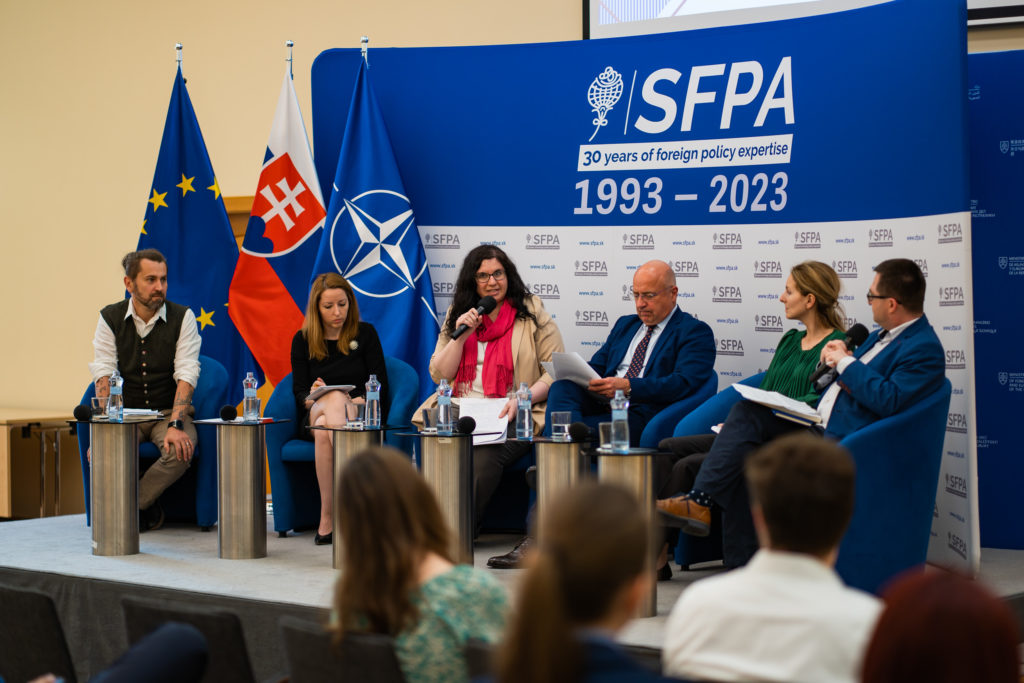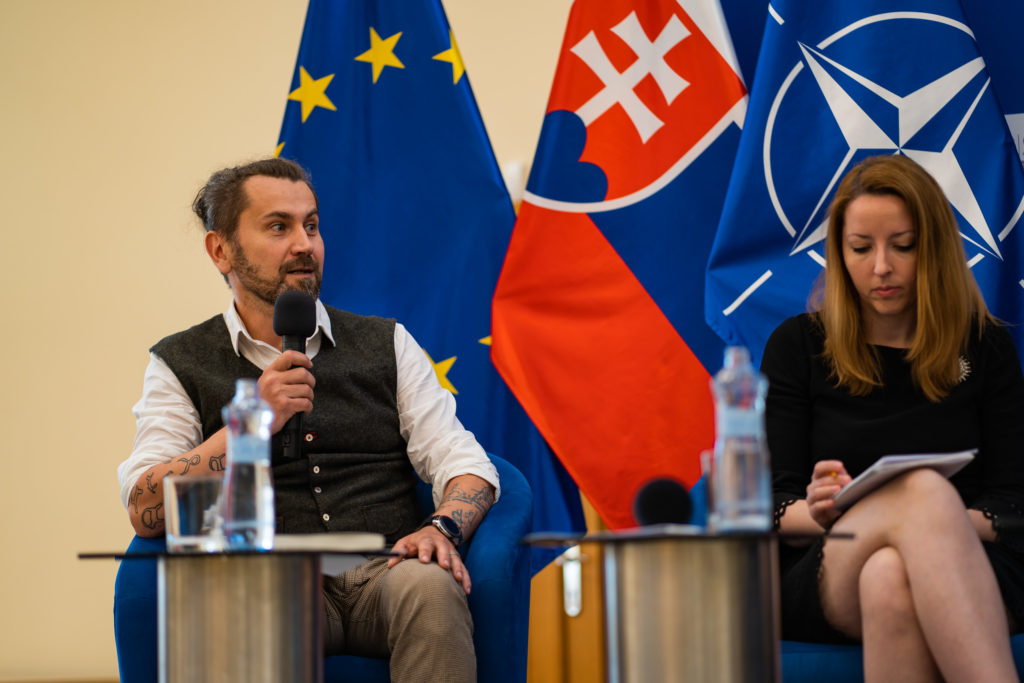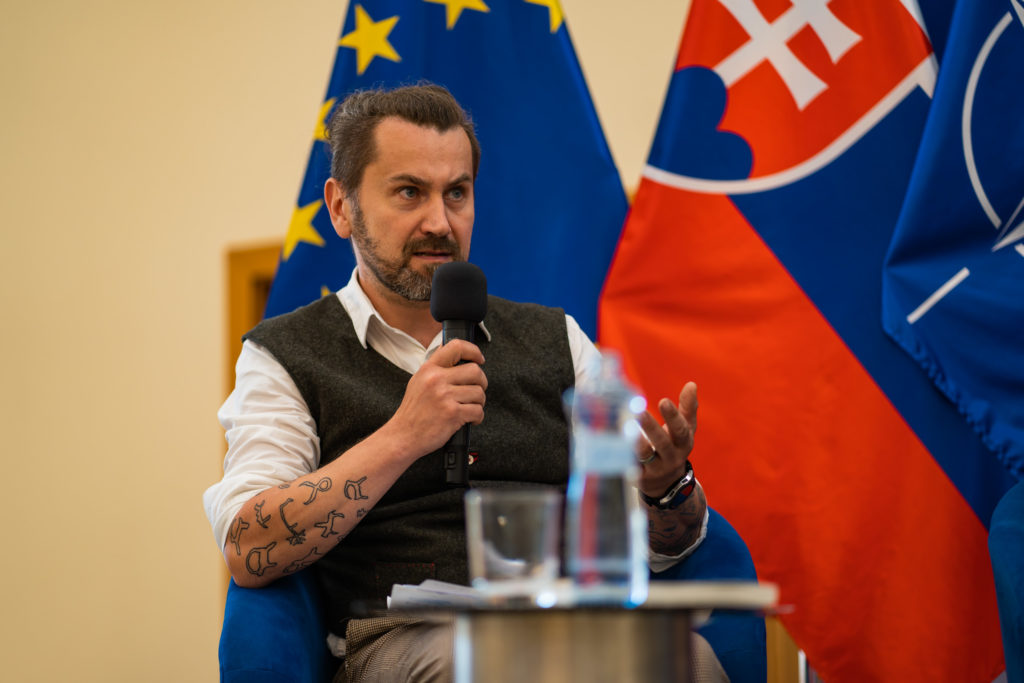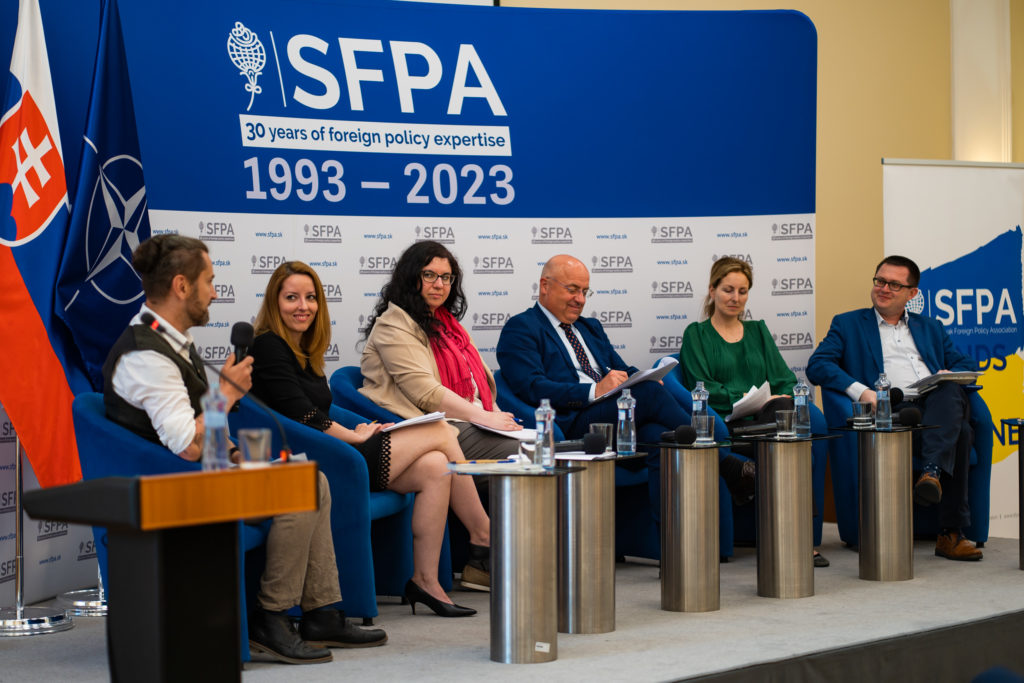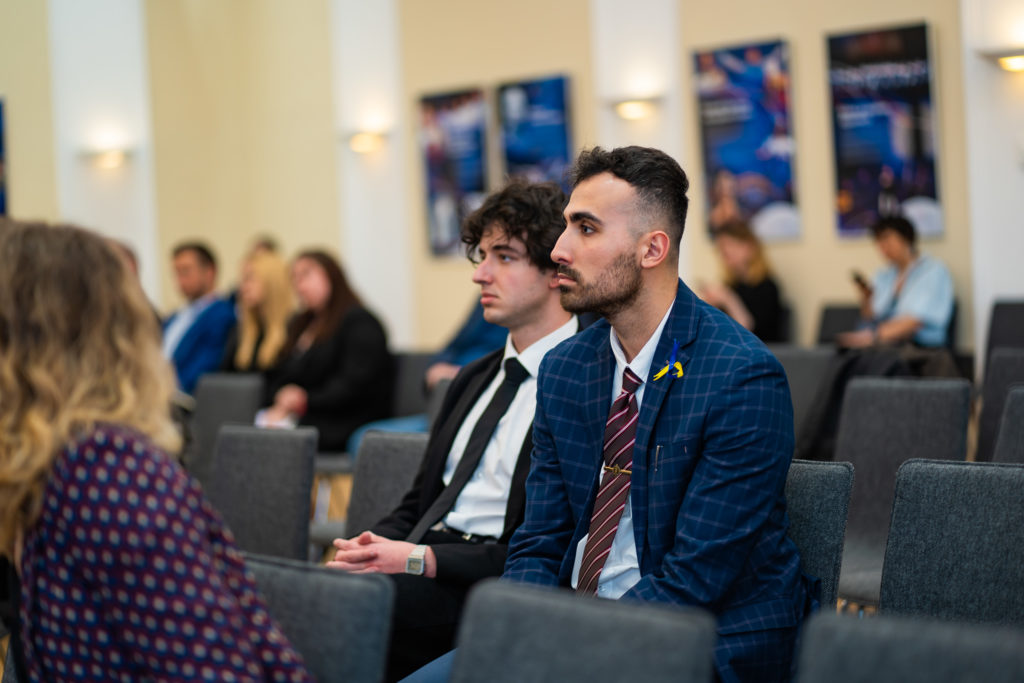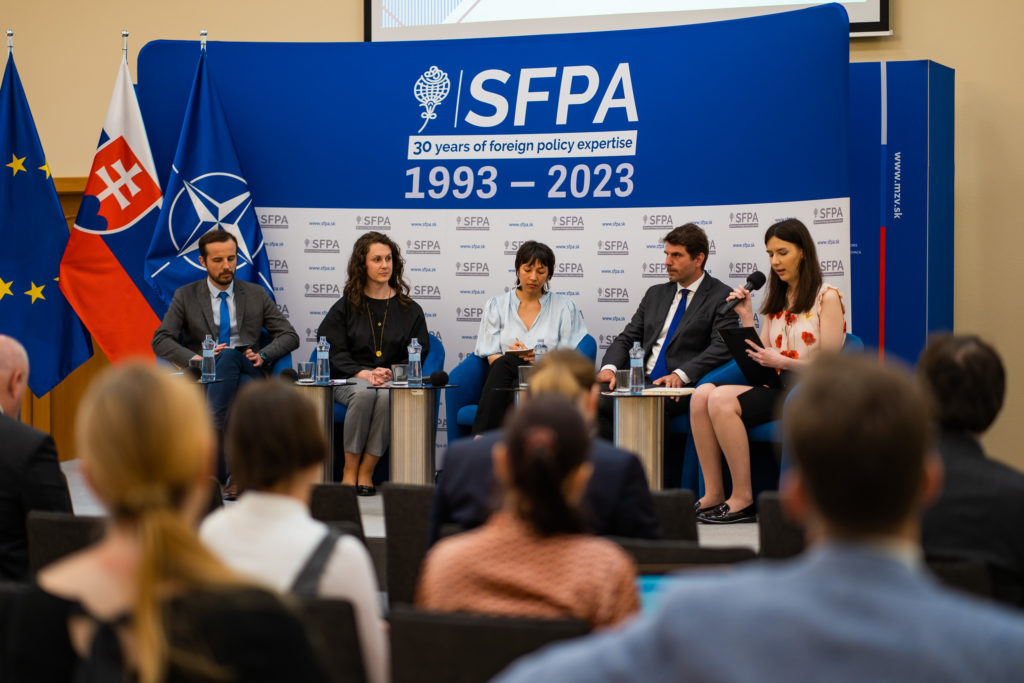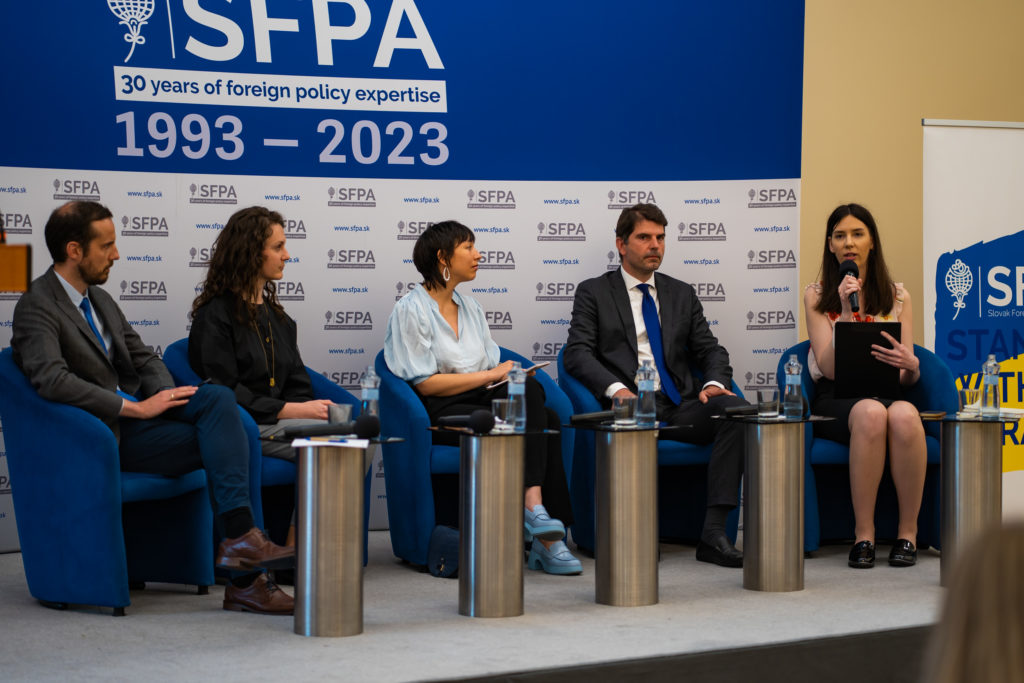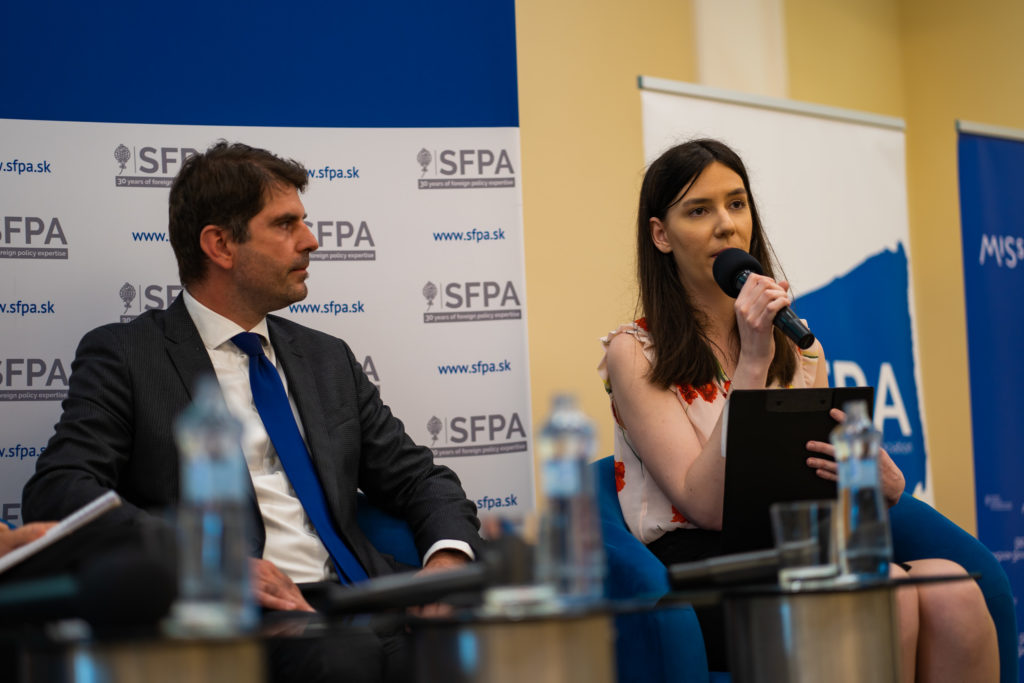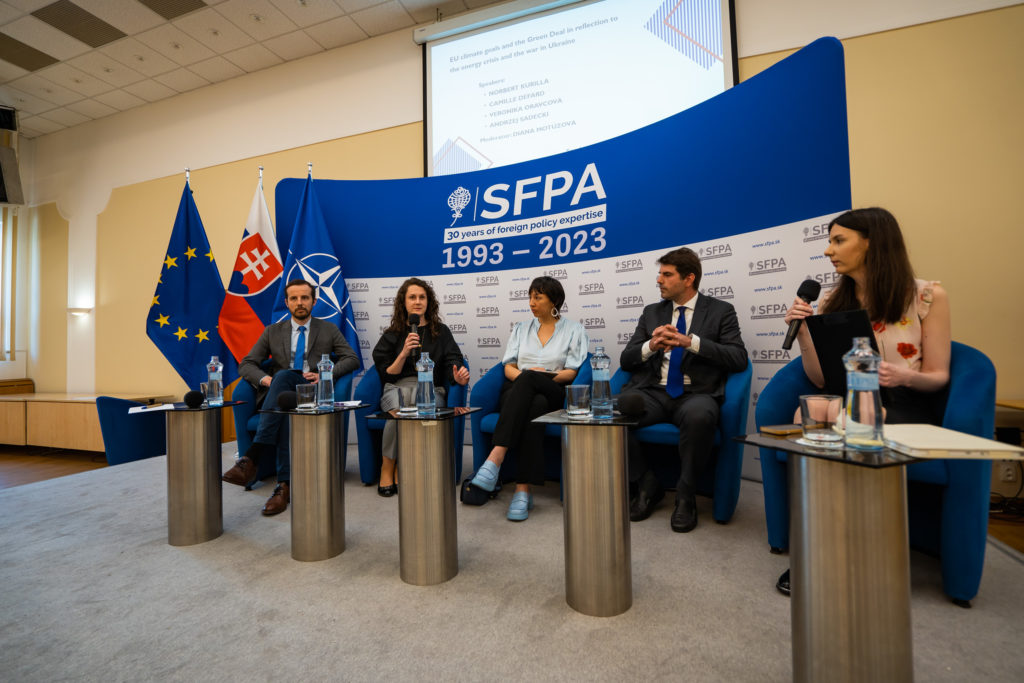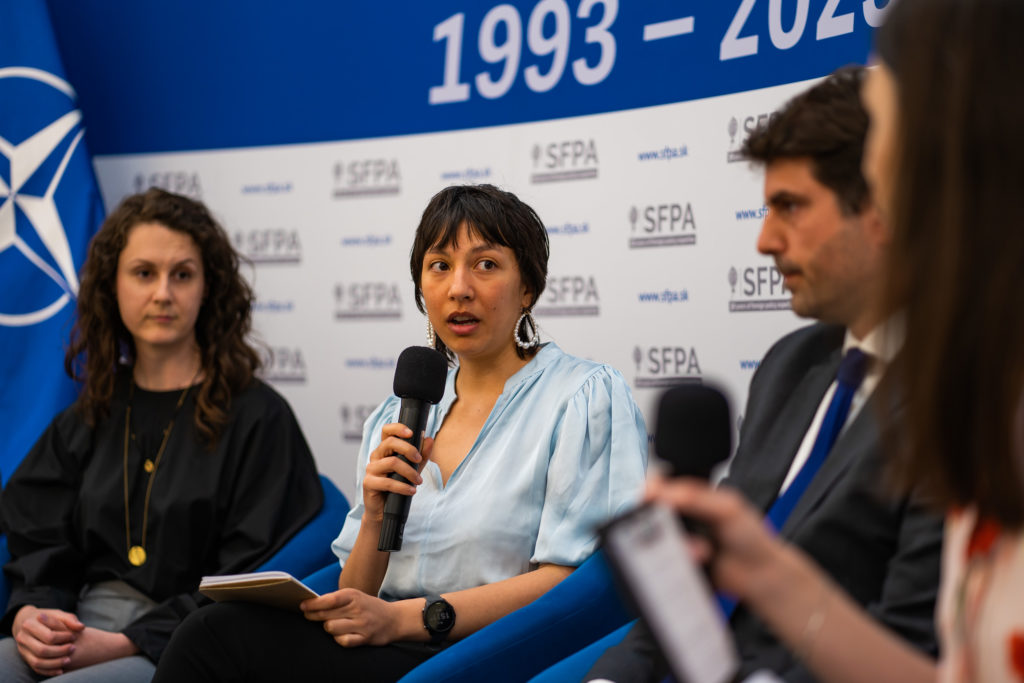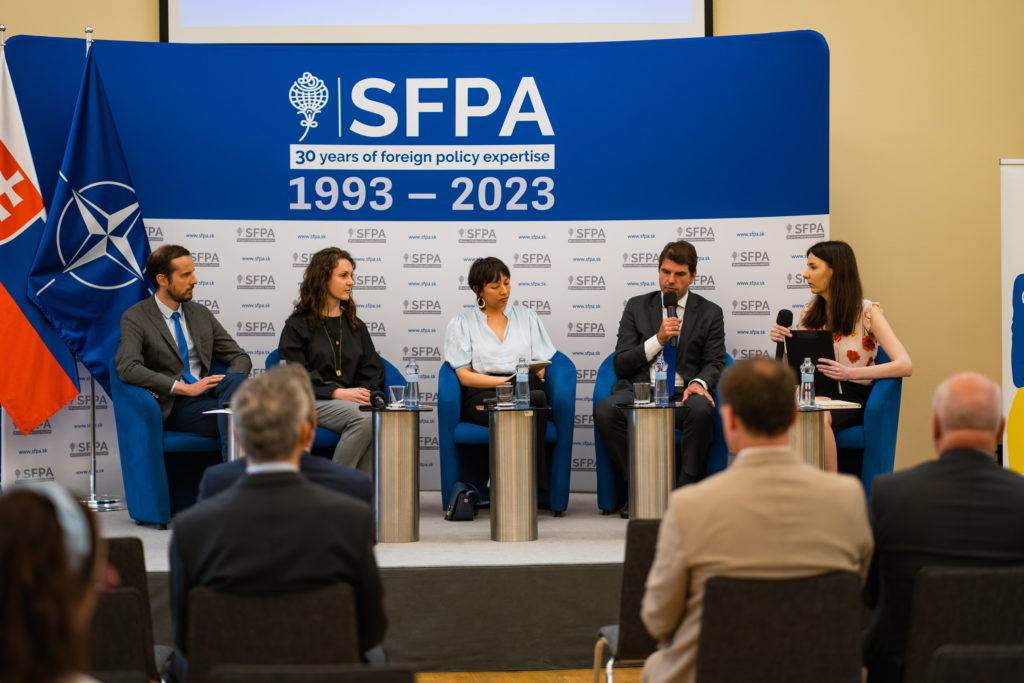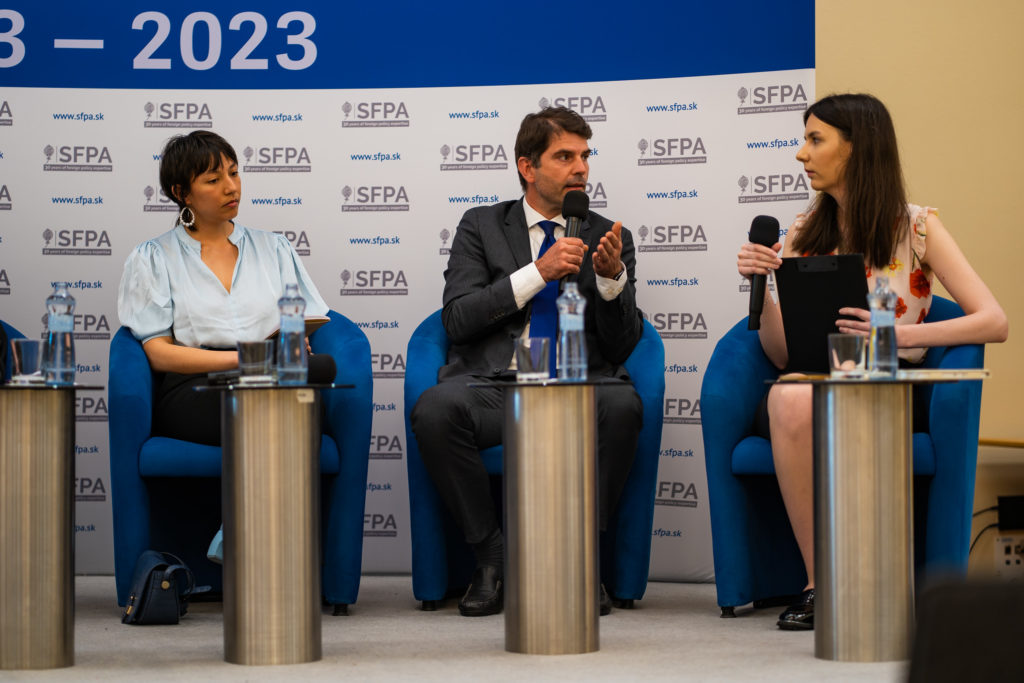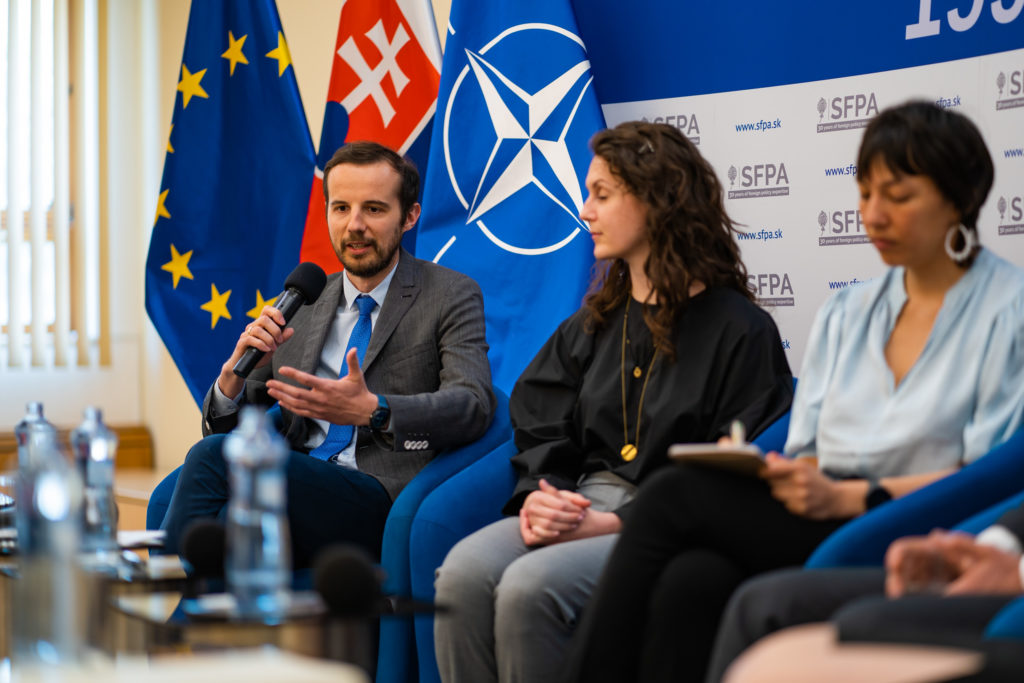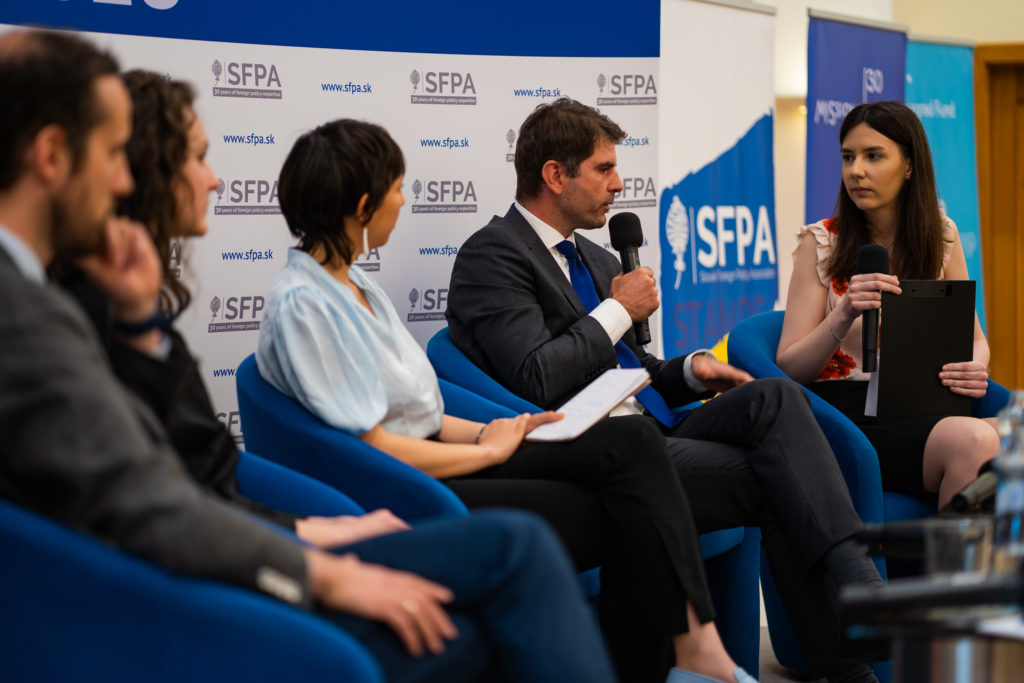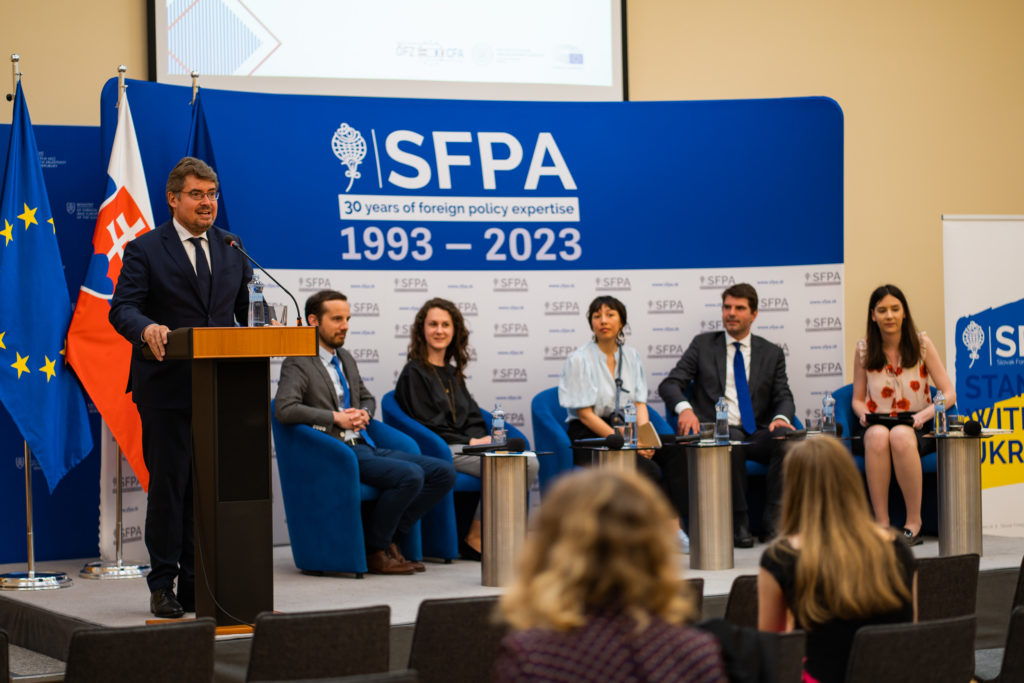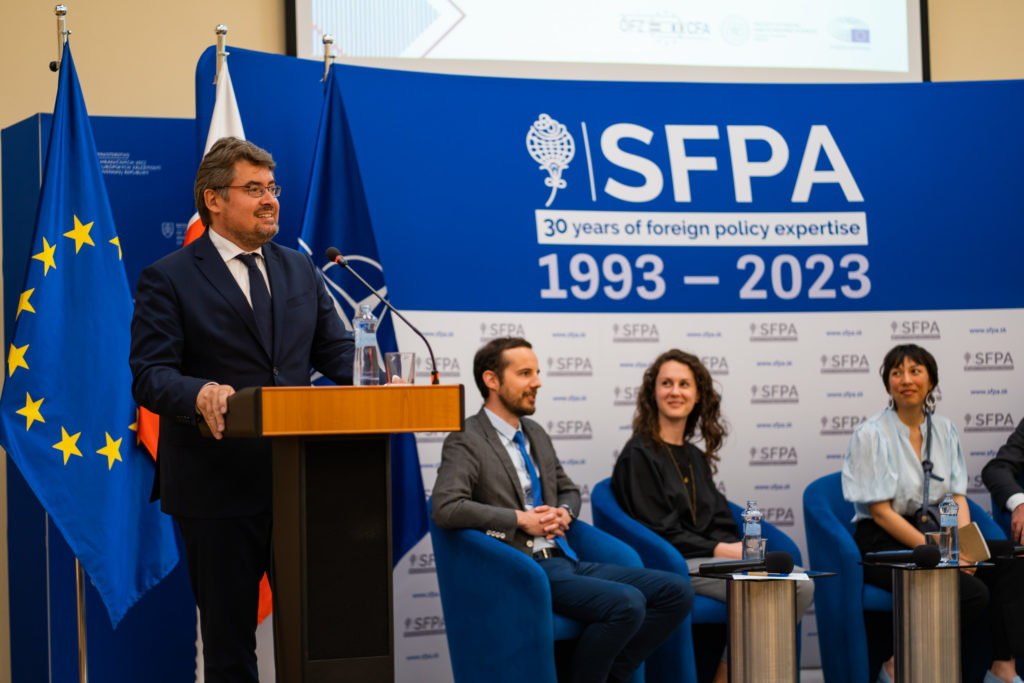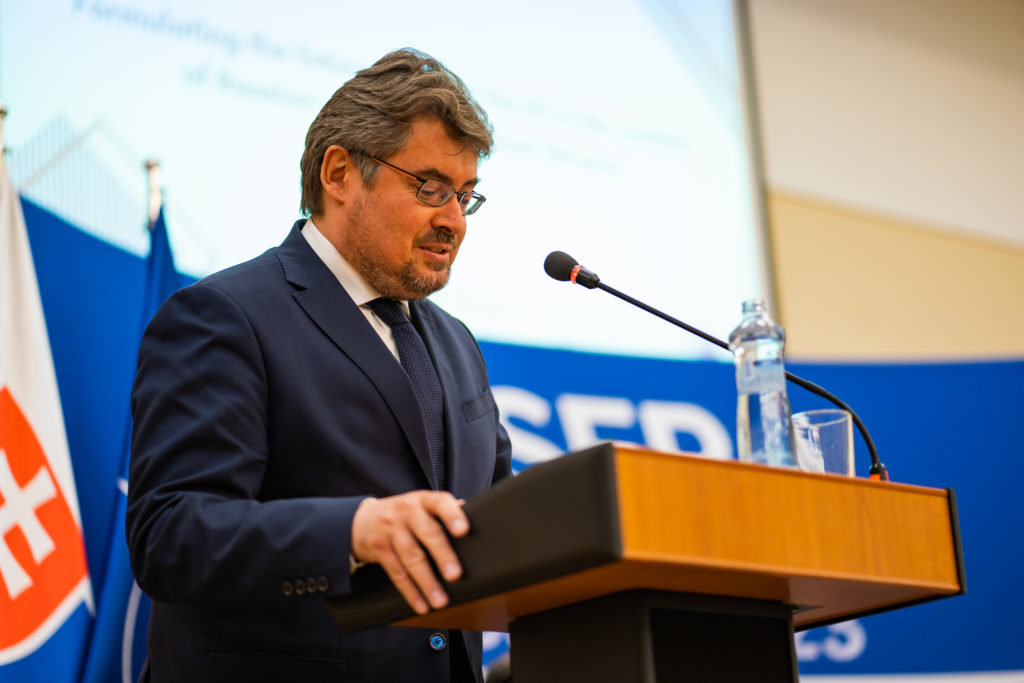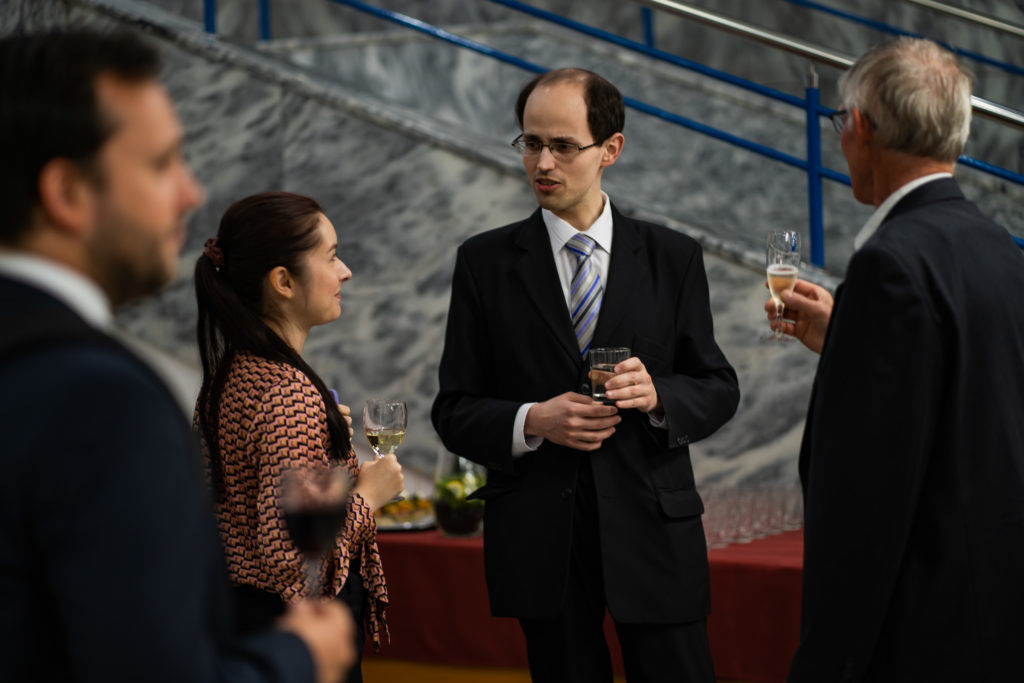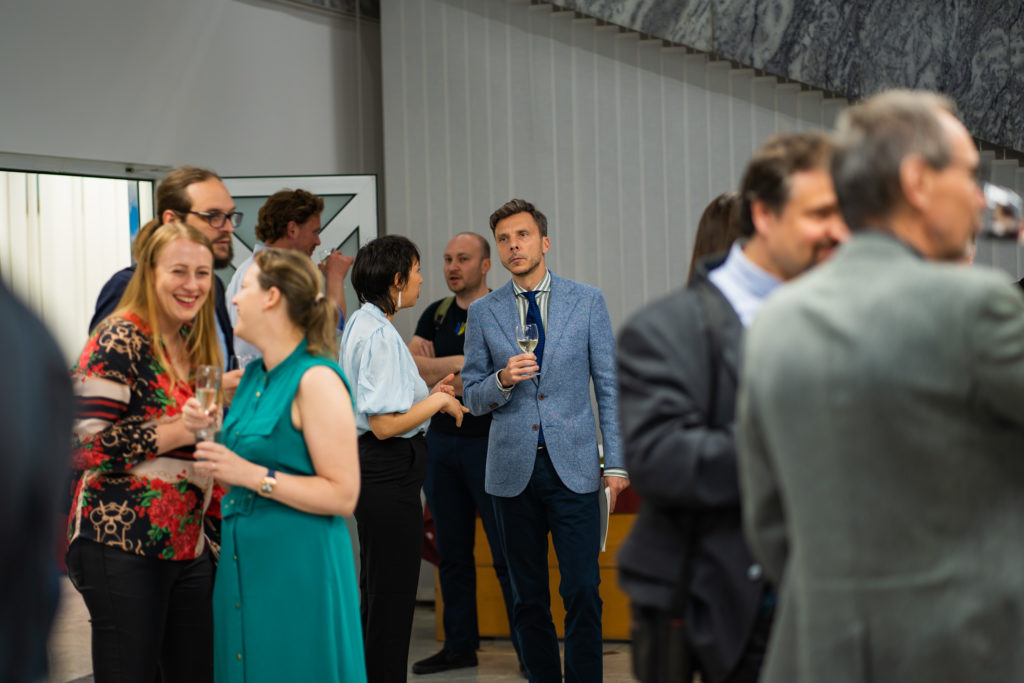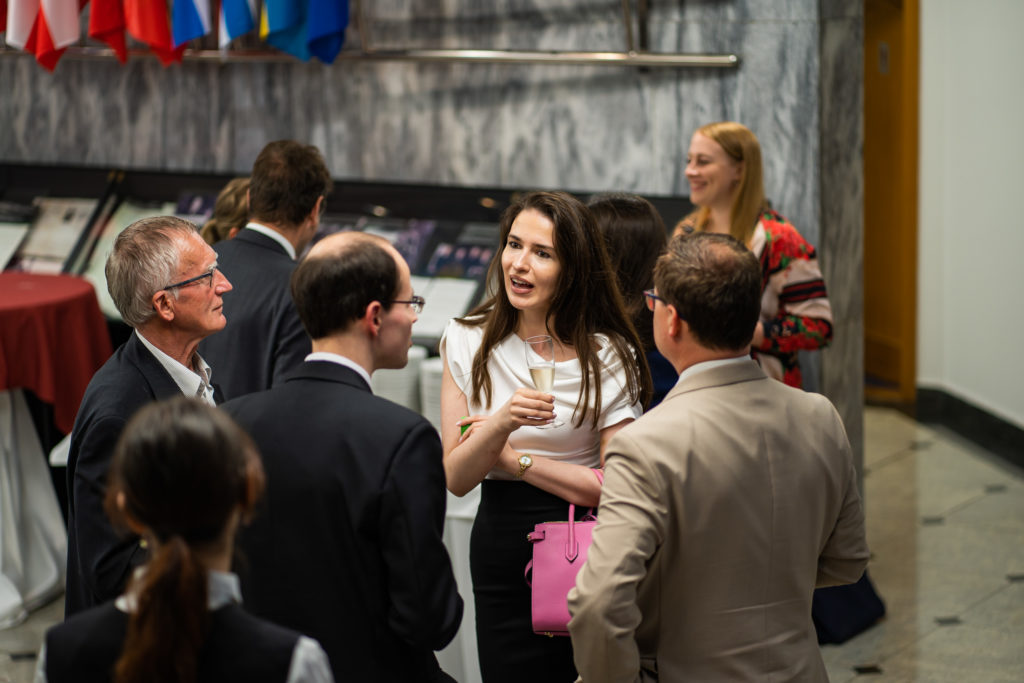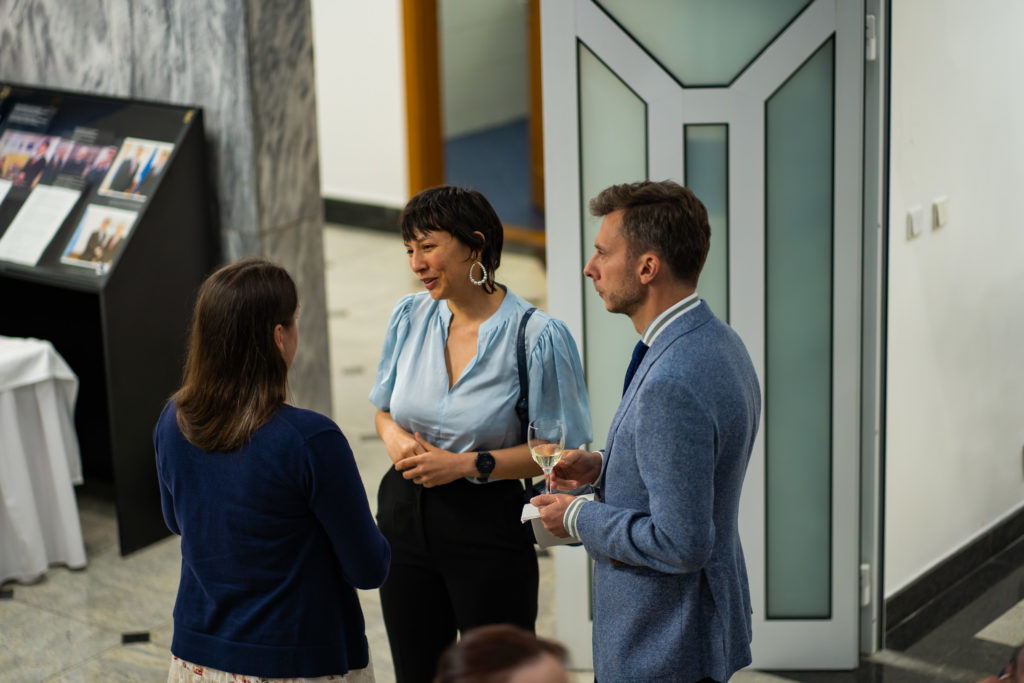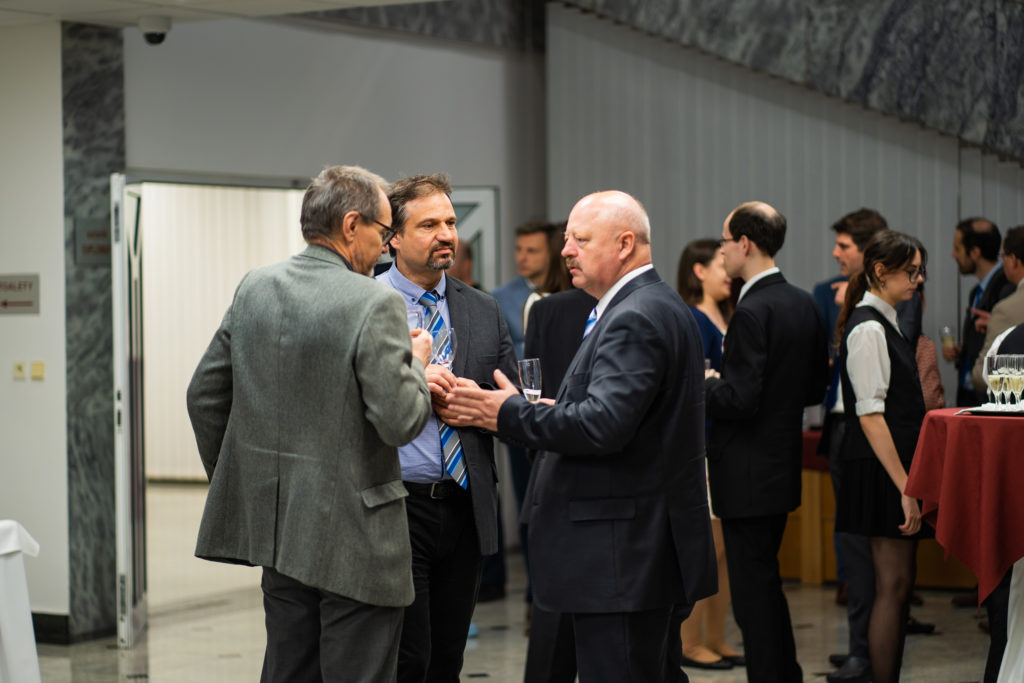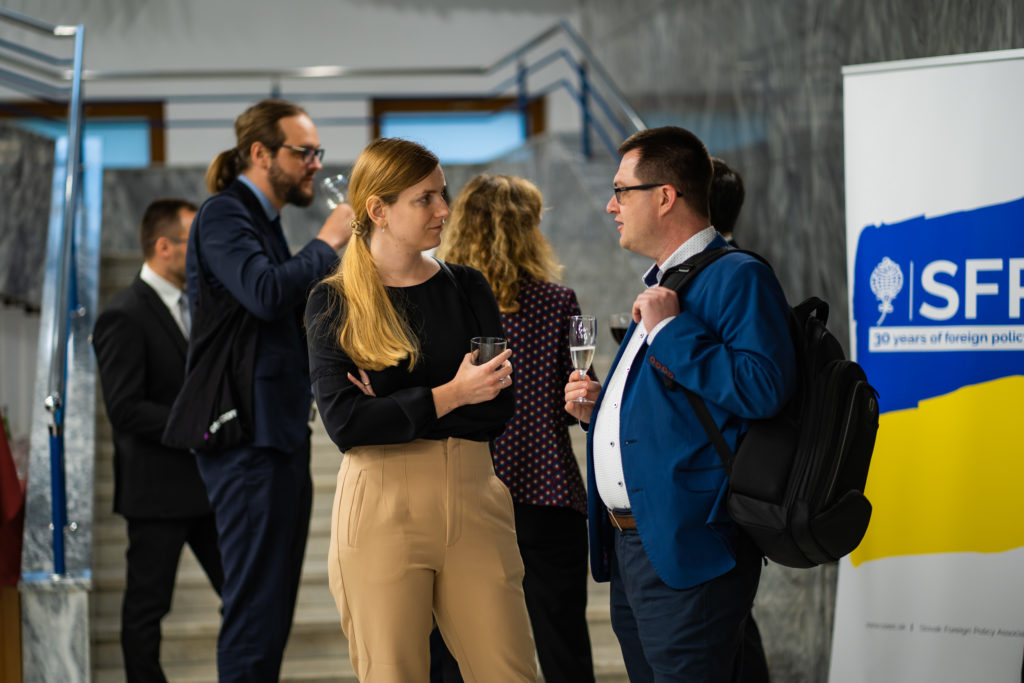The conference was held in the English language.
PROGRAM OF THE CONFERENCE
Tomáš Strážay, Director, SFPA
Petr Mareš, Executive Director, International Visegrad Fund
How does the process of following up on COFOE results looks like so far? Can citizens count on the implementation of all outputs and in what time frame? How to deal with the complications accompanying those citizens´ recommendations which require Treaty revision, as we observe several member states being opposed to this idea (such as the case of QMV in CFSP)? Are the EU leaders considering to continue organizing similar citizens consultations in the upcoming years? How do member states evaluate the activities implemented within COFOE at the national level? Are national leaders considering to continue with these activities with the purpose of better informing its citizens about the country´s EU membership and of preventing a rising Euroscepticism? What should be their ideal form?
Speakers
Tomáš Kozák, Director General for European Affairst, MFEA SR
Barbara Wolf, German Ambassador in Slovakia
Max Steuer, Assistant Professor, Department of Political Science, Comenius University in Bratislava
Žiga Faktor, Head of Brussels Office, EUROPEUM Institute for European Policy
Moderator
Katarína Cséfalvayová, Director, Institute for Central Europe
What is the current state of transatlantic relations? To what extent is European security linked to the US and when will we become more independent? Is the war in Ukraine a sufficient impetus to keep the current resolve of European leaders to focus more on capacity building in a long term? Will the EU manage to get closer towards a shared strategic vision? What does the future of EU enlargement look like and how did the dynamics of this process change after the beginning of Russian aggression in Ukraine? Will the current situation lead to a deeper reform and revision of the founding treaties? Will the member states be able to agree on introduction of the qualified majority voting system to the CFSP in order to achieve faster and more ambitious EU foreign policy? Do we already know more about the vision and benefits of the EPC for the EU and its neighbourhood? What is the future of the Visegrad 4 or the Slavkov formats of cooperation? What did Slovakia manage to achieve during its presidency in the V4 and the S3? Considering the increasing role of the CEE in the Union, what is Slovakia´s input and does it have sufficient expert representation in Brussels?
Speakers
Martin Kačo, Ambassador at Large for Ukraine, MFEA SR
Tomasz Żornaczuk, Head of Central Europe Department, Polish Institute of International Affairs (PISM)
Clotilde Warin, Policy Advisor at the Centre for Analysis, Planning and Strategy (CAPS), French Ministry for Europe and Foreign Affairs, Paris
Christos Katsioulis, Director of the Office for Cooperation and Peace in Vienna, Friedrich-Ebert-Stiftung
Matúš Halás, Senior Researcher, Institute of International Relations Prague
Moderator
Florent Marciacq, Deputy Secretary General, Austro-French Centre for Rapprochement in Europe
How is Slovakia doing in terms observing the rule of law principles, also considering the state of citizens´ general disillusionment and low trust in state institutions or courts? Has the EU managed to find an effective mechanism to control and protect the rule of law and democracy? Why is it important and to what extent is Slovakia active initiator in this regard? What development can we expect in 2023 in the countries which already experience issues in this area? Is the EU able to coordinate well its fight against disinformation and in which areas can we identify shortcomings? To what extent can we actually coordinate and define common procedures at the European level, taking into account variable national specifics (societal resilience, education, capacities of state institutions, etc.)?
Speakers
Marcel Peško, Ambassador with a Special Mission, Department for Hybrid Threats and Strengthening Resilience, MFEA SR
Federica Cristani, Senior Researcher, Institute of International Relations Prague
Katarína Klingová, Senior Research Fellow, Centre for Democracy & Resilience, GLOBSEC
Tamara Ehs, Consultant on Democratic Innovations, Vienna/Austria
Radovan Geist, Editor at Euractiv.sk, Member of EDMO Advisory Committee
Moderator
Andrej Matišák, Foreign Affairs Editor, Pravda Daily
How did the war and the energy crisis change Europe’s climate plans? Is the Green Deal at risk? How did the EU manage to deal with energy price fluctuations, as these began to grow even before the war and were undergoing a dramatic development in 2022? What is the future of nuclear energy in Europe? Despite the current situation, will the EU be a global leader in the fight against climate change? What was achieved in this area over the past year, despite the unfavourable circumstances? Is an increase of climate ambitions, as proposed by the European Commission, realistic?
Speakers
Norbert Kurilla, Advisor to the Slovak President on the Environment, Energy, Climate Change and the Business Environment
Camille Defard, Head of the Energy Center, Jacques Delors Institute
Veronika Oravcová, Researcher, SFPA
Andrzej Sadecki, Head of Central European Department, Centre for Eastern Studies (OSW)
Moderator
Diana Motúzová, Economic Analyst, Klub 500
The conference was organized by the Slovak Foreign Policy Association (SFPA) in cooperation and with the support of the International Visegrad Fund, Friedrich Ebert Stiftung and the Ministry of Foreign and European Affairs of the Slovak Republic. Further partners of the conference were the Austro-French Centre for Rapprochement in Europe, the FSES at Comenius University and the Office of the European Parliament in Slovakia. The organization of the conference was also supported by the APVV agency, under project c. APVV-21-0237: Slovakia in the European differentiated establishment (SKEUDIGFOVRE).
Gallery
